What is the Future? Liberalism? The Civilizational State? Or Guanxi and BUSINESS?
"There ISN'T a Western-led world anymore. There is a WORLD." (Jeffrey Sachs)
CONTENTS:
Preface
Introduction
Good Guys and Bad Guys: A dumbed down version of intelligent discourse
The 51st Street Report
There’s too much dirt between here and Mecca (Who the hell am I?)
The Rise of the Civilization State—Liberalism, Traditionalism, or Business: Which will it be?
United States
Democracy?
Liberalism?
Civilizational State? (Christianity? American Conservatism?)
Business
China
Communism?
Liberalism?
Civilizational State? (Confucianism? Chinese Conservatism?)
Business
India
Democracy?
Liberalism?
Civilizational State? (Hindutva? Indian Conservatism?)
Business
Russia
Presidential Republic?
Liberalism?
Civilizational State? (Russian Orthodox Church?)
Business
Realities for Black folks (Tough-love from an old brutha)
Can you “be Black” and “Be yourself” at the same time? [ANSWER: NO]
Conclusion
If you wish, you do not have to begin your reading at this point. You can skip the first five sections, including this Preface, mentioned under the “Contents” heading above, and cursor down to begin your reading under the heading titled, The Rise of the Civilization State—Liberalism, Traditionalism, or Business: Which will it be? I feel that everything I wrote prior to that section, including this Preface, is very important. In fact, though technically not essential, I strongly advise that you read those sections anyway. Let’s rap.
What is the purpose of life? That question would seem to be the most fundamental question that one can ask. There can be a gazillion definitions. But just for the sake of forming an easy analysis, let’s divide the world into two camps: “religious/spiritual” and “secular.” And let’s say that the purpose of life is to achieve success, keeping in mind, of course, that definitions of success are subjective definitions. Let’s briefly examine three types of individuals that measure success differently:
The solely spiritually engaged individual
The spiritually and materially engaged individual
The solely materially engaged individual
The Buddhist Monk: A Buddhist monk, who has removed himself from the world, and chosen to live an isolated life, in a cave, exiting the cave only to go into the city to beg for food, measures success much differently than does an ordinary person. He has two goals: to become enlightened and to reach a state called nirvana. Nirvana is attained only by eliminating greed, hatred, and ignorance within oneself. In order to help achieve enlightenment and nirvana, a monk will avoid engaging in the activities of normal life as much as possible. If he achieves enlightenment and nirvana, he has achieved success.
The Falun Dafa Practitioner: Falun Dafa, (also called Falun Gong) is a pre-religion, but Buddhist-influenced “cultivation” practice. In Falun Dafa, “cultivation” means spiritual development. A Falun Dafa practitioner’s goal is to reach maximum spiritual development by conforming to three principles that represent the supreme nature, or underlying qualities, of the universe: Zhen (眞), Shan (善), Ren (忍), i.e., Truthfulness, Compassion, and Forbearance. He or she works to achieve maximum spiritual development by cutting himself or herself off from all “attachments,” thus building his xin-xing (shin shing), i.e., his character, which increases his virtue, elevates his “gong column,” i.e., his degree of spiritual development, thus earning himself salvation, prevention of reincarnating, and entry into paradise.
The “attachments” that Dafa practitioners seek to rid themselves of and/or avoid are things that tarnish or destroy good character, thus hampering the building of virtue: jealousy, hatred, lust, pride, envy, greed, excessive emotions of any type, including excessive emotions stemming from love, etc. Unlike the Buddhist monk, though, a Falun Dafa practitioner does not remove himself from the ordinary world. He or she lives a relatively normal life, engaging in normal employment, even to the point of becoming monetarily rich (as long as he is not excessively attached to his wealth.) If he achieves salvation and entry to paradise, he has achieved success, and done so while engaging in normal “worldly” pursuits..The secularist: For many ordinary people, the attainment of enlightenment, nirvana, salvation, or heaven, are not goals that spell success. Obtaining an academic degree, a high-paying and excellent job, a fine car, a large home, prestige and standing, billionaire status are goals that, if reached, equate to success. They are called “material goals” by people of religion and spirituality. Success for me means owning this large, beautiful villa in Spain. Just kidding (ahem). I would never want something so ostentatious for myself. [LIE!!]
While writing my book, Uncle Tom’s Uncle, I wanted to create a definition of success that would be palatable to anyone, whether religionist, spiritualist, or secularist. The reason that I wanted to create such a definition was to prevent the possibility of the reader becoming distracted, from the themes of my book, by definitions of success that, based on the reader’s particular belief system, he or she would find objectionable.
And what I came up with is that, in my opinion, in order to become successful in life, an individual, whatever their belief system, should be aiming to achieve and maintain the states of balance, harmony, peace, and stability. I doubt that there would be anyone that would object to attaining any one, or all, of those states of being.
I am of the opinion that the world itself cannot survive in the absence of morality [See my article, entitled, Bring Back Sister Mary, or, "Humans are NOT nice people" (Bill Maher)]. But, since the notion of morality appears to have virtually disappeared, then perhaps if humans could be convinced that attaining balance, harmony, peace, and stability are essential for true success and survival, then maybe—just maybe—we can save ourselves, as a species, from suicide.
If an individual develops a strong mindset of questioning, at every second, whether or not what they are engaged in, believe in, or are reaching for will produce a state of balance, harmony, peace, stability, and thus, success, then that individual will avoid engaging in any wicky-wacky, as my friend, Naz, would put it, that could threaten to prevent the attainment of balance, harmony, peace, stability and, ultimately, success. Let’s just get down to the nitty gritty and talk shop. I’ll give a down-to-earth and, I’m certain, familiar example of a form of wicky-wacky that should be avoided:
Fannie Floozy lives in the neighborhood. Mike, a drama king who seems to think that life is a theatre that was created just for him, enters an exchange with Ed:
MIKE: “Guess who’s been asking about you—a lot?”
ED: “Probably someone I should stay away from.” Mike ignores Ed’s subtle jab.
MIKE: “Fannie.” Mike’s mischievous eyes and smile tell all.
Ed froze. Fannie is the most…ahem…neighborly woman in the community, although, for some strange reason, other women—especially married women—do not seem to appreciate Fannie Floozy’s form of neighborliness. Mike notices Ed’s frozen state.
MIKE: “She still likes you, Ed.”
ED: “Mike, why are you always trying to start some sh*t?”
MIKE: “Don’t gimme that bullsh*t! I saw your eyes. You still like her.”
ED: “Mike….You’re an a**hole.”
MIKE: “Hey, my friend, I’m just passing on information, that’s all.”
ED: “Yeah, right: Information that could break up my marriage.”
MIKE: “And who’s fault would that be?”
Fannie and Ed (or Ed and Fannie), before Ed married Mary, had had a lot of neighborly encounters. And it had gotten pretty deep. After Ed married Mary, he’d converted to a traditional form of Catholicism which maintained the pre-1960s doctrines and rituals, including the Latin Mass. But Ed’s problem is that his heart (and other parts of his anatomy) do not understand Latin. And Fannie barely understands English, if you get my drift. And she’s been asking about Ed.
Ed is not a Buddhist monk. Ed is not a Falun Dafa practitioner. And, in general, from my experience, anybody with the name “Ed” is just Ed. And Ed is just Ed. Ya know? He wonders if mandatory residence in hell, for having committed a mortal sin, as traditionalist Catholicism taught, was really forever. Of course, he could take a chance. He could be neighborly with Fannie Floozy, and then, afterwards, run to St. Anselm Catholic Church to take advantage of the Sacrament of Confession, confess his sin to a priest, thus having that sin removed from his soul.
Of course, if, while running to St. Anselm, he dies of a heart attack, that’s called sh*t’s creek—and he’d be up it: He would go to hell, where he’d burn in its fires forever, because he’d failed to have his sins forgiven, in Confession, before dying. From the Catholic point of view, being neighborly with Fannie Floozy rated that form of neighborliness mortal.
Truth be told, though, Ed is not that religious. Ed, again, is just Ed. He’d converted to Catholicism only for Mary—and her parents. The idea of burning in hell forever is an incomprehensible idea to Ed, and one that, in truth, he simply does not believe in AT ALL. What counts, in this life, for Ed, is this life. Nothing else matters. Period. And Fannie Floozy—not just any Floozy—has been feeling very neighborly, according to Mike, with special eyes for Ed.
Ed muses over those old neighborly times with Fannie Floozy. But then he muses over his good fortune. Ed has a very supportive wife, in a stable marriage. Ed’s an engineer by profession, and his boss is going to put him in charge of the brand new AI/Robotics (Ed’s specialty) department his company is creating. Plus, Ed and his wife, Mary, have spotted their dream home. Everything has panned out perfectly in his life, just as Ed had planned. This is no time to make mistakes. Yet, Ed begins rationalizing. “But,” Ed thinks, “I got one life to live!! I mean…We’re talking about Fanny Floozy!!!” This is a TOUGH one. Ed struggles.
Ed struggles with himself for another twenty minutes. Finally, he thinks, “Oh, just give it up, Ed!! You’ve come too far. And you’ve got too much to lose.” Also, towards the end of that twenty-minute struggle, he recalled Fannie’s nickname: Stormy. Fannie Stormy Floozie. Ed thought, “I must have been a fool. Anybody known as Stormy is obviously going to cause problems.”
Ed’s final decision is to stay as far away from Fannie Stormy Floozy as possible, and to continue with his successful trajectory in life. And Ed makes this decision not because Ed’s religious or spiritual or has a high regard for being moral. After all, if Ed was so moral, he wouldn’t have even thought about his former neighborly relations with Fannie Stormy Floozy, nor would he have struggled with himself about whether to practice neighborliness again with her.
Ed’s final decision was based on avoiding imbalance, disharmony, unpeacefulness, and instability, thus allowing himself to continue on to achieve his conception of ultimate success: having and raising two children, owning his own engineering company, and purchasing my Spanish villa from me. Can hardcore pragmatism serve as a substitute for morality? Let’s just say that hardcore pragmatism can force, or produce a state of morality even if someone doesn’t give a whit about waving the flag of morality. Be careful, young people, in your sojourn towards success in this life.
I am the first to openly, and easily, admit that the topics of international relations (for which entire curricula exists at universities across the world), geo-politics, and global economics and finance are topics that some might legitimately consider to be beyond my paygrade. Before retiring, and throughout my adult working life, I had essentially been a “working Joe,” and, at times, a glorified working Joe in the capacity of what I call a “paper laborer.” Or, as “Old Blue Eyes,” i.e., Frank Sinatra, sung in that classic song, That’s Life, “I've been a puppet, a pauper, a pirate, a poet, a pawn and a king.”
I’ve worked every kind of job, from shoveling elephant sh*t at Ringling Brothers Barnum & Bailey Circus, to working as a self-taught Database Manager for seven years. I’ve written six books, two of which are still selling at Amazon.com: Saving the Savior: Did Christ Survive the Crucifixion, The Afrocentric Myth, The Real Heresy of Pope Francis: An Islamic Perspective from an ex-Catholic, Uncle Tom’s Uncle—First Edition, Uncle Tom’s Uncle—Second Edition, and The Scheme, a novel that never got published. I was once homeless for a couple of months, living in my car and using my bicycle, which I kept in the trunk of my car, in order to save gasoline when biking to a small, start-up restaurant where I worked for my meals, and to Manpower, Inc, where I worked what was called “day labor.”
My goal has never been the goal of a strict, cave-dwelling monk. Let’s just be clear about that.
Despite puppetry, piracy, poetry, pawn status and kingship; despite, in other words, all the vicissitudes [my mom just loved that word🙄] of life, my current [note the word “current”] wife of 33 years and I could, if we wished—and not to brag—take two one-week vacations a year, to Europe or anywhere else, all expenses—air fair, hotel charges, food, entertainment, etc.—paid by us. Why? And why is this relevant to the subject of this article?
We are in the position that we are in because both of us, in our lives, despite ups and downs that were sometimes brutal, had parents that taught us to be serious in life and keep it moving. Also, they taught values, such as, if you have menial employment, such as pushing a broom, at a warehouse, as my dad would say, then SING!!! Sing while you push that broom, and act like you OWN the place, and keep it moving. We kept it moving, saving our pennies.
And this is all relevant to the subject of this article because a world is unfolding, rapidly, in which succeeding in life, I believe, is going to be much, much tougher than had been the case before I retired. It will be a world that, if you want to do something more than just cover your bills; more than just survive, you’re gonna have to work very hard and stay on top of unfolding trends—globally.
Although the term “civilizational state” sounds good to my old-fashioned ears, the truth is that whatever direction the world turns—whether towards liberalism or towards separate, civilizational states—one thing will always be happening: BUSINESS. And to those of you who have religious or spiritual leanings, “business” does not necessarily equate to “materialism.”
Later, you’ll discover that the alleged “civilizational state” being developed by “Communist” China might be better called a Profitarian state. [“Profitarian” is a word. I just created it]. Xi Jinping and the Communist Party of China care as much about Communism as I do about volunteering, at an annual Filipino Good Friday celebration, to be crucified in memory of the crucifixion of Jesus Christ.
In case there’s any doubts: No, I AIN’T INTERESTED. By the way, the public celebrations of Good Friday, in the Philippines, that are shown in this video, are child’s play compared to the real deal that goes on in the back woods areas of The Philippines. Now that’s where you’ll see some serious crucifixions!
Anyway, if you’re young, you have time to begin conditioning your mind to accept reality. That does not mean that you must totally abandon whatever belief system you currently adhere to. But, try to adopt a wide view that will shield you from being strictly ideologically driven to the point of stupidity. A word to the wise is sufficient.
In this world, thinking in terms of absolutes is unintelligent, as well as dangerous. Here’s a question for Americans: How often have we been told that some leader of a foreign country is a bad guy, and everybody in our government are good guys? For instance, of the two pictures below, which one would you choose to be “the” good guy, and which one would you choose to be “the” bad guy?
I have my opinion—based on knowledge. But I won’t share it here [Well, maybe a little bit, through “hints”], at least not in any detail. Do some homework. Some of you will know what I’m getting at.
During NATO’s assault on Libya, I served as an independent journalist, using a pseudonym. I wrote 200 articles, in nine months, for Adam King’s, Mathaba.net, covering NATO’s and “the rats,’” as Gaddafi called them, war on Libya.
The “rats” were members of the Ikwan-ul-Muslimeen (Muslim Brotherhood), foreign jihadis that were flown into Libya by I-won’t-mention-who-but-you-can-probably-easily-guess, taqfiris (taqfiris are Muslims who issue “fatwas”, i.e., “Islamic” decrees that declare other Muslims to be “outside of the pale of Islam,”) a Libyan military traitor, trained at Langley, and the usual assortment of mercenaries, bandits and opportunists.
Going further back, during the upheavals, in the U.S., of the 1960s and 1970s, I gained a ton of experience writing as a self-taught, underground, independent journalist, producing accurate information. So, in 2011, it was not difficult for me, in covering Libya, to make important contacts, globally, in my “job” of obtaining accurate information.
I was able to obtain and maintain contact with all types of individuals, from LDF (Libyan Defense Force) soldiers on the ground that were defending their country and shooting to me and others almost minute-by-minute updates on the progress of the war, to an ex-educator (female) of the former Frunze Military Academy of Russia. (Well, I guess, by now, it ain’t that hard for the reader to figure out which of the above two men I consider to be the bad guy between the two, or, at the very least, the worst bad guy of, perhaps, two bad guys).
Other independent journalists covering Libya were former Congresswoman Cynthia McKinney, who was in Libya at the time, and who, through email contact, I convinced to write a book about NATO’s assault on Libya, Lizzy Phelan, Lisa Karpova, Adam King, T. West, Dr. Franklin Lamb, Dr. Webster Tarpley, Mahdi Darius Nazemraoya, Stephen Lendman, and others. Oh, it’s important to know that those who were supporting…ahem…the good guy between the two shown above were an assortment (quite surprisingly) of liberals and conservatives, such as the former YouTube content creator, Martin Brodel, who, though conservative, openly cried at his YouTube channel on the day that Tripoli, the capital of Libya, fell. It was the horrific injustice displayed by world powers that drew sympathy for Libya from conservatives, liberals and people of various belief systems.
Let’s create an illustrative example that, I hope, will help you to get my drift about dumbed down, bad guy/good guy rhetoric and discourse, and why you should probably ignore such non-nuanced, absolutist thinking. Let’s say that an east African country produced coffee, and that European companies with advanced manufacturing capability purchased that coffee and processed it, in Europe, into various products to be sold on the European market. Let’s further suppose that the European green movement, which has great power in Europe, used its power and successfully forced the closure of coffee processing plants in Germany, out of its stated concern and claim that discharges from coffee processing plants were polluting German rivers.
Let’s suppose that I am the head of an American corporation with manufacturing facilities all over the world, including in African nations. Through the grapevine, I hear that the bad/good guy on the left, in the above picture, inspired by an almost fetish, pan-African dream of political African unity—a United States of Africa—has decided that he will use his country’s great oil wealth to finance the construction of a coffee processing plant in that east African country I mentioned earlier, which, due to the European green movement, just totally lost sizeable revenue from the European coffee market, due to the closure of German coffee processing plants.
I decide to approach representatives of the bad/good guy on the left side of the above picture, to see if I can get in on the action. Through negotiation, I convince the bad/good guy head of Libya to give my company the contract for building that east African plant. The bad/good guy head of Libya believes that such an investment in east Africa will serve as an economic and political investment in his long-range plans towards the unity of the countries of the African continent. As for myself, I could care less about the creation of a United States of Africa. All that I really want is another Villa in Spain, since I sold my first one to Ed, who was smart enough to stay away from Fannie Stormy Floozy, and went on to great success.
Well, unfortunately, a brick is thrown into the works. The bad/good guy on the right, along with a bad/good guy of the United Kingdom, named David Cameron, as well as another bad/good guy of France, named Nicolas Paul Stéphane Sarközy, decided that the bad/good guy on the left of the picture of the two bad/good guys shown above, was a bad guy—what Western leaders, when they want more money (or power), describe as “a brutal dictator,” and then try to convince the rest of us of the same. So, they got together and had NATO bomb the sh*t out of Libya. And that ended my dream of building that manufacturing facility, making money, and purchasing and moving into the Palazzo delle Luce villa in Spain, all because of three bad/good guys, one in particular.
Oh, incidentally—a little footnote: The bad/good guy on the right, after Libya was destroyed, later confessed that a vital aspect of his involvement with Libya was the “worst decision” he had made, during his administration, as President of the United States of America. It reminds me of the murderess, Angela Simpson, who deliberately tied someone up, tortured him for a week, and then killed him because, as she claimed, he was a snitch. When asked by a reporter, “Do you believe him? Do you think he really was a snitch,” she answered, with cold, stone-faced, macabre sarcasm, “Oops, if he wasn’t.”
Click the above thumbnail picture to check out Angela Simpson’s “Oops” moment.
Oops!! Sorry I bombed the sh*t out of Libya, said the bad/good guy on the right.
Will it be wise, during your journey toward success in your life, in a world that’s rapidly moving towards multi-polarity and economic cooperation, to evaluate the global environment based on the trite, dumbed down, manipulative rhetoric and narratives of corrupt and/or incompetent politicians and/or ideologues? Should you just assume that, just because someone is in political leadership, that that individual has your best interests in mind? Or should you, instead, use the precious little time you have on this earth to obtain broad, detailed, and accurate information, so that you will be able to make the best decisions that you can make for yourself and your family? The answer should be obvious. Remember, and this is not cold. It’s just a fact: The first law of nature is self-preservation.
Who are the good guys, and who are the bad guys? This is a very, very fundamentally important question you need to answer for yourselves in your travels down the road of life towards success. And if you don’t know the correct answer to that question [And there is one], you will open yourselves up to manipulation, including manipulation by those you may assume to be looking out after your interests—such as people in public office—but who are not.
Well, first of all, especially for my fellow Americans, understand that you do not live as occupants of “the single most powerful nation on earth,” militarily, economically, politically, and even culturally protected within a cocoon of impenetrable isolation. That day, for various reasons, has come to a screeching halt, especially of late. You now live on a planet where power disparities are fast vanishing. The “uni-polar” world, where America and the West once dominated, is dead. Keep that in mind.
However you “deal out your hand,” as my big brother would put it, with respect to your approach to achieving success in life is, of course, up to you. I’m just sharing my views. I chose the title, as well as the theme, of this section because I feel that, in navigating one’s way through this world, at this time, one must develop and maintain a strong amount of clarity in order to avoid illusion and delusion. One must deal in facts.
As an American, born and raised in the United States, having lived on this planet for seven decades, and having paid some attention to the types and rates of change that have occurred over the decades, what slaps me right in my face is the fact that the exercise of defining “the” good guys on this planet from “the” bad guys on this planet is a severely dumbed-down, unintelligent, wasteful, and futile exercise. Because, there are no “the” good guys, and there are no “the” bad guys.
Who are the bad guys? Who are the good guys? First, in broad terms, you have two types of bad guys. One type involves one individual: YOURSELF. The other type can be found in other individuals.
Some of the things that make you an enemy to yourself are: lying (to yourself), self-deception, scapegoating, ignorance, fear (especially fear of taking a chance), incompetence, naïveté, illusion, delusion, procrastination, paranoia, ill-preparation, bad time-management, and your memories of Fannie Stormy Floozy. The first thing that one has to do in life, before embarking upon the road to success, is to look inward at oneself, be honest about what one sees, and be willing to wage a war against oneself that’s designed to get rid of such weaknesses as I just listed. In the Islamic religion, that war is called the “Jihad Akbar,” that is, “The Great Jihad.” The Jihad Akbar, the war against oneself, can be the most difficult war to wage.
Incidentally, always remember: One can find inspiration from many different sources. Sources of inspiration for me include my dad, my mom, my big brother, a mentor named Leroy Hardy, another mentor named Ahmad Saeed, Dr. Claud Anderson, and some others. I even draw inspiration from fictional characters, like the ones of the swashbuckler movies and TV series of the pre-1960s era, such as Robin Hood, Zorro, Flash Gordon, etc. One of my big sources of inspiration was a man named Mirza Bashirruddin Mahmud Ahmad. He had an expression: “Life is a grim and serious affair.”
Yeah. He looks pretty grim and serious to ME. It was rumored that, even though he was the second leader of an Islamic movement, the Ahmadiyya Movement in Islam, dedicated to spreading Islam through peaceful means, he would occasionally whack somebody with that cane you see in the flick above, if the person hadn’t correctly completed an assignment for their movement.
But, one can say that he had legitimately earned whacking rights. He had single-handedly spread “Ahmadiyyat” around the world by creating a school for Ahmadi Muslim missionaries, produced a 3,559-page Arabic, English translation, and extensive commentary of the Qur’an, and had four wives (simultaneously), a feat that his son, Nasir Ahmad, testified that he was not interested in achieving for himself, revealing that he’d grown up to witness what it meant to have four wives. Anyway, in short, Bashirruddin had put himself on the rack, an example [minus the four wives] that inspired millions of others, both in Pakistan and around the world.
Apparently, the spreading of Islam through peaceful means included un-peacefully whacking an aide to competence. Whacking brought success: Ahmadiyya is now located in some 200 countries of the world. Perceiving life as “grim,” quite frankly, is not, for myself, the best way to perceive it. But, I get it. So, I’m still inspired by his saying, Life is a grim and serious affair.
(As an aside, and with regard to this “grim and serious” life, beware of the educational institutions you attend!! You’ll need REAL SKILLS in the fast-changing and fast-developing world, not courses that focus on American culture war, Marxist bullsh*t. PREDICTION: There will emerge conservative, parallel university structures that will go back to basics. Don’t pay tens of thousands of dollars on an academic degree that lands you a dish-washing job. Please read this Washington Post opinion piece by George F. Will. It deals with the declining value of college enrollment.)
The other type of enemy, of course, can be found in other people. In this regard, I am fond of invoking a saying of the social critic and comedian, Bill Maher: “Humans are not nice people.”
Whether priest, rabbi, mufti, guru, smiley-faced and baby-kissing politician, or anyone else, Humans are NOT nice people. Of course, you can’t assume that the priest, rabbi, mufti, guru or politician is telling you the truth, and you can’t assume that they are competent. You can’t assume that they’re good guys. You can’t assume—no matter their title, dress style, haircut, tone of voice, claims of competence, or listing in peer-reviewed journals—that they know what the hell they’re talking about. You have to make your own determination, through your own research and your own intuition and your consultation with people that you trust. Done.
Despite my doubts that I could ever get it done, I’ve had this fantasy—desire, actually—to create a video channel entitled, The 51st Street Report. Its purpose would be to break down various forms of information, from news items, that feature certain subjects—politics and government, science, economics, etc.—so that the average person in the streets could understand them. I’d interview experts who knew how to translate information so that the average person could understand it.
I was born and raised on 51st Street, in a working-class neighborhood on the south side of Chicago, up until age 13 when my dad, my big brother, and myself moved with our grandmother, Sugarbaby, to the family home. Anyway, for me, 51st Street is a symbol of the average, working-class individual.
I can’t say that I have the capacity to perfectly break down information that society is exposed to. But, I think I get the gist of much of what is going on in the world of geo-politics, for example. Of course, what drives me the most is my hope that young people, despite huge dysfunctionalities [the correct word is corruptions] in government, will both succeed in life, become competent, and then wrest control of our governments from incompetent knuckle-heads. For a 1-hour and 44-minute analysis of the origins of Western leadership incompetence, check out Gonzalo Lira:
I felt that it was fair to you, the reader, to explain my background, since, in this article, I’m talking about issues relating to the world. I have no initials or titles behind my name that indicate expertise in geopolitics, economics and finance, international relations, etc. As I said earlier, I was “just” a working Joe during my work life. Working Joe or not, I live on this planet. And the actions of others, particularly our leaders, affects me. So, I have to strive to understand, as best that I can, what’s going on.
In demanding the best from others, I am the first to demand the best of myself, as you’d see if you read my book, Uncle Tom’s Uncle, Second Edition. In the chapter of that book, entitled, Chaka Ra (aka, Leroy Hardy), I relay an encounter I had with a fellow-student at the University of Illinois at Chicago in around 1972, whom I was tutoring in engineering. I was all but brutal in my tutoring of fellow, Black engineering students.
One student, as you would read in my book, got so angry with me because of my tough-love form of tutoring, that he invited me to a fistfight, an invitation that I enthusiastically accepted. You can find out the final outcome of that encounter by reading the book. Okay, nuf said. Now, I’ll try to give a “brief” outline of my Working Joe background.
I was raised on the south side of Chicago in a typical, traditional, conservative Black family, neighborhood, and community. Black folks, back then, were not described as “conservative.” We were described as Negroes, Colored, or Niggers, depending on who was doing the describing. We were not “conservatives,” in some political sense. But we lived conservative lives—VERY conservative lives. Back then, the south side of Chicago was not a “war zone,” as it’s called today, what with Black youth murdering each other these days. It was stable, productive, and safe.
Both my brother and I were sent to Catholic schools, and this is important with respect to how I view things today. Most Black folks were Baptist Christians. Like most Americans, the focus of their lives was primarily local.
As a Catholic, I experienced a different world—a more expansive world. The Roman Catholic Church, an international Church with one leader, described its members as “The Body of Christ.” I spent 12 intense years in the Catholic school system, and saw myself more as a citizen of the Roman Catholic Church than as a citizen of the United States OF America. I was not “of,” nor was I the product “of” anything less than The Universal Church, to which all else was subservient.
My leader was not called “President.” My leader was The Vicar of Jesus Christ, The Successor of the Prince of the Apostles, The Supreme Pontiff of the Universal Church, Primate of Italy, Archbishop and Metropolitan of the Roman Province, Sovereign of the State of Vatican City, Servant of the Servants of God, Pope of the Roman Catholic Church, Head of the Body of Christ, Representative of God on earth.
In addition to my universal Catholic identity, the Black community, back then, as I observed while growing up, displayed virtually no concern whatsoever about White folks. Personally, today, I feel that that’s why our people actually produced more back then than today, as these two videos that I’ve used in other Substack articles attest to:
Last, but more important and fundamental than the above influences, was my dad. He’d been a bartender, an undefeated boxer, an architect student at Roosevelt University, and a professional, unionized, expert carpenter, successfully retiring from the Chicago Carpenter’s Union with a full pension.
Dad once sustained a severe and lengthy cut on his inner thigh, from a power saw, on a construction job. The cut ran from underneath his knee to just short of his groin area. He was laid up for a couple of months.
While recovering at our home, he was administered to by his girlfriends. Though technically dad was a non-observant Christian, one might be tempted to refer to his girlfriends as his six wives, two of whom—Lola and Dorothy—were White, the other four Black:
Hattie Mae Hopkins
Hattie Mae Hearn
Theresa
Fannie Mae
Lola
Dorothy
Over the months, they appeared, as I saw it, to sometimes work in shifts. The most obviously jealous one was Theresa. I would have preferred to be outside playing when Theresa was “on duty.” Not that she ever did anything crazy. It was just that the jealous tension was reflected in her eyes, in her body movement, and in the tight smile she’d give to one of the other “wives” who might just be leaving as Theresa arrived. During his recovery, dad stayed in the living room, in one of those Murphy beds—the ones that fold up into the wall. They were very popular back in the day.
If Lola or Dorothy, dad’s White “wives,” would be leaving as Theresa would be arriving, Theresa, for some strange reason (ahem), would appear to be particularly pissed—much more pissed than if one of Daddy Cheese’s Black wives was just leaving. She’d enter the living room, her arms folded below her breasts, and stare at dad, stone-faced. He’d look at her, eyes wide opened, and go, as if he didn’t know what she was pissed off about, “What?” She’d sigh, and go deal with whatever—cooking or whatever.
My point? Dad had no boundaries. When it came to women, segregation didn’t mean sh*t to him. This impacted my thinking about my environment and outlook about life. I was not relegated to 51st Street, the south side, Chicago, Cook County, Illinois, the United States, America, or the Western hemisphere. I just wasn’t. I dated mostly Black women, two of whom I married (Uhh, no, not at once). In college, I had a Chinese girlfriend. And I’m currently married to a White woman. Blame my dad. As Rod Keithley, author of Racism: What It Is, What To Do About It, said, “It is almost an axiom in anthropology that when two cultures meet they do not always bleed, but they do always breed.” I second that emotion. Boundaries, in today’s world? No, I don’t think so. Keep that in mind as you read further.
Well, fast forward. It’s my last month, April of 1968, at Hales Franciscan High School. I’m 18 and struggling with regular teenage stuff. In addition, I’d spent three of the four years at Hales in doctrinal battles with the priests, especially in Religion Class. That’s because The Second Vatican Council had changed things we’d always been taught could never be changed, and my feelings about those changes ranged from bewilderment to intense anger. What right had Vatican II to change anything about God’s Universal Church?
It was in my Sophomore year that my doctrinal battles with the Franciscan priests first began. I was sitting in religion class, struggling with the changes that The Second Vatican Council (Vatican II) had initiated. The teacher was Fr. Angus, a very mild-mannered (but not for long) priest with an angelic smile (but not for long).
There had been a religious doctrine which stated that to eat meat on Friday would earn one a mortal sin on one’s soul. And if you died with that mortal sin on your soul, you would be thrown into hell and burn in its fire forever as punishment for sinning. Well, that doctrine was changed. I raised my hand:
ME: “Father, it used to be that if you ate meat on Friday, that was a mortal sin. And if you died before confessing your sin in the Holy Sacrament of Confession, you would burn in hell forever.”
FR. ANGUS: “Yes, my son. That was our doctrine. That was the rule.”
ME: “But now The Vatican changed that. So now, if you eat meat on Friday, it’s okay. You won’t get a mortal sin on your soul.
FR. ANGUS: “Yes, my son, exactly. But what is your concern?”
ME: “Well, Father, I was just wondering: What happens to the people who are burning in hell under the old rule. Now that the rule has changed, will they be let out of hell now?”
I was not trying to be funny. I was truly struggling to try to maintain my Faith in The Universal Holy Roman Catholic Church, God’s religious and spiritual manifestation on earth. It took about six seconds for the question to sink in to the other students in class. Then, they burst out laughing. I didn’t laugh: Fr. Angus was red-faced and clearly angry.
When the intense laughter finally ended, but a couple of students were still snickering, Fr. Angus said, “Are you quite finished, Mr. Chism.” I replied, “Yes, Father.” He shouted, “BLASPHEMY!!! GET OUT!!!! He told me to get out and go sit in the Principal’s office. I was also forced to go to detention, after school. It was a big mistake—on their part.
From that day forward, until the last day of the last year I was at Hales, I couldn’t WAIT to go to religion class. I became a master of the Bible, ferreting out every contradiction, every inconsistency, every interpolation and every seemingly immoral and unjust thing I could find, starting with the immorality and injustice of God having His own son humiliated, spat upon, tortured, crucified and murdered for my sins and the sins of every human believer in Jesus. No. I’ll pay for my sins. I have integrity, and am not expecting anyone else to pay for my sins.
“For God so loved the world, that he gave his only begotten Son, that whosoever believeth in him should not perish, but have everlasting life.” (Bible, John 3:16)
That doctrine no longer appealed to me. The idea that someone else had to pay the price for my sins seemed the ultimate expression of supreme injustice. Right now, today, at this very moment, I live in a world where my “leaders” appear to be leading us to World War III. And it appears that we may have to pay the ultimate price for THEIR sins. Where’s the justice in that? By my senior year, I was on the verge of rejecting my Catholic religion that I had so much previously loved.
I’d become such a pain in the arse of the priests that the principal of the school, Fr. Titus [We students, amongst ourselves, referred to him as “Fr. Tight Ass,” because he was obese] called my dad to school to tell him that I would not be graduating, because of my “disruption” in Religion class. I’ll never forget.
We—my dad, Fr. Titus and myself—were standing in the hallway, just outside of Fr. Titus’s office. I have no idea whatsoever how Hales thought it could just willy-nilly prevent me from graduating on account of my challenging Catholicism. But, Fr. Titus threatened to do so, actually telling my dad that, and then asking him, “Do you approve of your son’s actions against The Lord?” Against “The Lord.” Despite my angst against Catholic doctrine, I was still too Catholic to think, “Gimme a f*ck’n BREAK!!”
My dad was standing there, cool, with his characteristic shades, suit and tie, and his red socks. And here is what MY dad said, to my shock, and, for certain, to the shock of Fr. Titus. And he said it with characteristic cool. He didn’t shout. He didn’t wave his hands around. Very calmly, he said,
“For the past four years you’ve been teaching Ronnie Aristotelian logic; You’ve been teaching him the extensions of Aristotelian logic through St. Thomas Aquinas, William of Ockham, and some other folks I can’t remember right now. You’ve taught him to be honest; You’ve taught him to think deeply. You’ve taught him to not accept information blindly. And you’ve taught him to question everything. But now that he’s applying everything that you taught him, and applying it to your religion, you’re telling me you’re not going to allow him to graduate.”
OH….MY….GOD!!!!!!!! I had had no idea that Daddy Cheese, as we called my dad, had been paying that close attention (as parents should do, of course) to my education. All the time he’d been talking to Fr. Titus, I was looking at him. But when he challenged Fr. Titus in that manner, I turned my head and looked at Fr. Titus. Fr. Titus had dropped his head, apparently in shame. But, to his immense credit, he eventually raised his head, looked my dad right in his face, and said to my dad, even while I was still standing there, “Mr. Chism….My apologies. Your son will graduate—he’s earned it.” Fr. Titus, despite his temporary display of blind, overt religiosity, had demonstrated integrity. I am certain that God has given him a high place in Heaven.
Then, on April 4th, 1968, the Reverend Dr. Martin Luther King, Jr. was assassinated. I’d been insulated, as I said, from the problems of that “world” that was called “the United States of America,” because of the strength and protection of my dad, the strength and protection of the pre-1960s Black community, and the universal nature of the Catholic Church. But now, suddenly, at the death of a man whom I knew little about, other than that he was peaceful, I was finished with Catholicism, and, on the spot, became an atheist. Dr. King’s assassination was the last straw that broke my religious back.
The next day, April 5th, 1968, I walked out of Hales, followed by about 400 students. From there, all 400 of us walked to DuSable High School, and turned it out, the entire student body leaving DuSable empty. That huge crowd then went to Phillips High School and turned it out. That evening, I started, and became the first and only president of, B.A.D—Black, Active and Determined. Within one month B.A.D. had two branches, one on the south side and one on the north side in Old Town Gardens.
The year 1968 was a bit disappointing for me. By 1969, I had tired of the posturing, macho rhetoric of Black revolutionary leaders of that time, whose outlook appeared to me to be circumscribed within a cocoon of ideological rhetoric and anger that was limited and defined by the memory of chattel slavery, Jim Crow, racism, segregation, etc.
The only “militant” group that was building anything substantial was the Nation of Islam (NOI), under Elijah Muhammad. In truth, as regards institution-building, they were moving right along with the general pattern of the Black community, minus the Black Baptist Christian religion. I could not have joined their organization, though, although I highly respected their “do-for-self” focus. They had their own religion, and religion and I weren’t getting along anymore.
The dehumanization of Black folks had occurred, of course, as was an historical fact. But the productive Black community that I’d grown up in had rolled with the punches and thrived. That community had never allowed things that were limited and limiting to affect their progress. My conception of myself had been as a free individual, unburdened by anything other than my former belief in “original sin,” a belief I no longer embraced.
All of the stars of the Black revolutionary movement, whose average age was about 24, had significantly dimmed, for me, by 1969. In 1969, I joined a very different and serious organization called The Afro-American New Society, whose leader, Leroy Hardy (“Chaka Ra”) had developed a serious, 50-year plan for the “defacto partition” of the United States, and the creation of a nation for Black folks. We were going to exercise a long propaganda campaign, aimed at Black Americans, to convince them of severing seven States, in the south, as an independent nation for Black folks.
We were given assignments to obtain either useful academic degrees or trades. Though the organization eventually disbanded, many of its members went on to obtain degrees in engineering, mathematics, architecture, math, law, etc. We’d had no interest and no time to be “worshipping,” as we used to call it, White folks by “begging” them, through the use of protest or empty threats of waging a violent, “Black revolution.” Nor would we engage in what Chaka called “nostalgic self-indulgence” about the “glorious past” of Black folks, “When we built pyramids.” We saw such indulgence as wasteful. We would build our own nation, through becoming highly educated, working hard, and being tenacious.
By 1975, I’d been an atheist for 7 years and was attending the University of Illinois, en route to obtaining a degree in engineering. My soul began to miss a connection to The Divine. Strangely, I met a Black man named Muhammad Al-Bakri. He invited me to a Mosque. I was very impressed by the form of prayer that I watched them perform. It was at Muslim Community Center, on Chicago’s north side.
The prayer lines included Blacks, Whites, Indians, Arabs, Chinese, etc. I was immensely impressed. That scene appealed to my well-developed sense of being a citizen of the world, and not some Black victim, perpetually locked within the jaws of “The White Man.” In the Black community that I’d grown up in, “The White Man” had been irrelevant. In watching that multi-racial prayer ritual, I felt as if I was back home, religiously and spiritually free again; as free as I had been under the Universal Church; as free as Chaka had made us in The Afro-American New Society. That evening, I accepted Islam, or what is called, sometimes, “orthodox Islam,” or “Sunni Islam.”
The next year, 1976, I switched from Sunni Islam to Islam as taught by the Ahmadiyya Movement in Islam, a sect of Islam founded in 1889 by Hazrat Mirza Ghulam Ahmad. During that one year, in 1975, that I’d been a Sunni Muslim, I’d learned a lot about the world of Islam—the good, the bad, and the ugly. You can read about that in the Substack article I wrote, entitled, The Truth about Trump and Muslims.
Well, in 1976, the third leader of “Ahmadiyyat,” as the Ahmadiyya Movement in Islam is also called, was scheduled to visit the States. Because of that one previous, intense year I’d spent as a Sunni Muslim, in Chicago, a major city of the world, I was asked to be part of a security team for Ahmadiyyat, and given the assignment of monitoring the activities of certain…intense, let’s just put it, Sunni Muslim organizations that might contain dangerous individuals who would be perfectly and easily willing to assassinate the Ahmadiyya leader, Mirza Nasir Ahmad, based on sectarian, doctrinal differences. The Sunni Muslim world did not like the Ahmadiyya Movement. And that’s an immense understatement.
If you read my article, The Truth about Trump and Muslims, you’ll learn about an Ahmadi medical doctor, Dr. Muzzafar Ahmad, who, on August 9th, 1983, was murdered, right in the United States, in Detroit Michigan, by Sunni Muslim assassins who were under the influence of a Pakistan-based terrorist group called Al-Furqan. So, that kind of extreme sectarianism, in the world of Islam, is real. And I took my assignment very seriously.
The President of our local “Jamaat” (community), Abdul Kabir Haqque, worked with me, and was also on the security team. In fact, although the then U.S. Ahmadiyya headquarters, at 2141 Leroy Place, N.W., Washington, DC (right adjacent to the Russian embassy) had instructed the security team that, due to the peaceful nature of Ahmadiyyat, all security team members must not be armed, we American converts to Ahmadiyyat had an American interpretation of “peaceful nature.” We ignored those instructions from HQ and were armed to the teeth, silently packed with concealed weapons, fully trained and fully prepared to extinguish anyone coming near Hazoor (an affectionate title used by Ahmadi Muslims for their leader). Thank God that nothing too…peaceful happened.
Anyway, one of the storefront, Sunni Muslim Mosques that Kabir wanted to investigate was located on east 79th Street, in Chicago. We both went there together, introducing ourselves in a friendly manner, exchanging “salaams,” etc., but not identifying ourselves as Ahmadi Muslims. When we walked into that Mosque, we noticed that, in the prayer room of that Mosque was a 5ft x 5ft x 5ft miniature of the cube-shaped Holy Kaaba of Mecca, the structure that all Muslims, the world over, face while performing salat, the formal prayer ritual. This was just whacked.
Kabir looked at me, trying (barely successfully) to suppress a smile. Kabir then said to the Imam of that Mosque, “So….Yes!! The Holy Kaaba! It’s………….beautiful!! I’ve never seen a replica of the Holy Kaaba at a Mosque before. So, this is Sunnah?” It wasn’t. And Kabir knew that. Asking if it was Sunnah was asking if having a replica of the Kaaba in the prayer room of a Mosque was Kosher; was allowed; was sanctioned within the writings, such as hadith, of Islam.
The Imam answered, “Yes. It’s Sunnah. It’s our Sunnah,” he said, and with the stern face of a very committed Jihadi. Kabir answered, “Al-Hamdulillah!,” i.e., “All praise is due to Allah.” In usage, it’s like saying, “Good” or “Cool.” And I’m not mocking. Al-Hamdullilah is said so automatically that it often does sound and feel like, “Cool.” Then, without being asked why, the Imam said the following,
“You see, my brothers, we built this Kaaba, and we face it while praying, because There’s too much dirt between here and Mecca.” It was the craziest thing I’d ever heard, up to that point. But, when I think about it today, the statement can be seen to have significant symbolic meaning. Either that or I’m stretching a bit in order to make an important point.
We can all develop one form or another, in our minds, of paradise. If not paradise, then the idyllic world that we would like to see unfold. Our politicians, for example, thrive on presenting to us, through their rhetoric and eternally suspect “promises,” Mecca; Shangri-La; Paradise. How often have we heard, for example, our politicians claim that they’re supporting the waging of war against a country “for Democracy,” when, in fact, we either know that they’re lying through their teeth, or the truth comes out later.
They’re lying now about Ukraine, whose government disbanded eleven political parties, all for “Democracy,” we’re told. Well I thought that democratic countries don’t ban political parties. And if a democratic country bans political parties, show me the democratic part of that.
There’s too much dirt between here and Mecca. There’s too much dirt between you and the idyllic world that most of us would like to live in. What I’m trying to say is that you must not allow idealism to blind you to the realities in life. Because, in this world, between you and that ideal state, the road to heaven is paved with brutal realities; brutal truths. There’s too much dirt between here and Mecca. Got it?
Last, an honest word on where I stand in the “liberal” vs. “conservative” world, just so you’ll know, up front, an important influence, or bases, of my thought processes. I’ve only voted for the Presidency three times in my life: Ralph Nader, Ross Perot, and Donald Trump. Before that I was a-political. I never cared a whit about describing myself as liberal, conservative, a Democratic or a Republican.
But, over the passage of time, and starting in the 1960s, I noticed that the “liberal” wing of American society was getting more and more and more insane. By 2016, I felt that America, and the West at large, was finished. Liberalism had come to mean anything-ism. I started watching the political videos of young, openly conservative video content producers. And I noticed that they were sane, smart, and simply correct in their analyses. They weren’t “White racists,” just by virtue of being White and conservative.
Then came Trump, who clearly didn’t give a sh*t about image. At first, I thought what appeared to be the obvious: “Another slick politician, but with an entertainment background—an obvious con-artist performer to the max.” Then, on inauguration day, he didn’t do the, “Let’s all now kiss and hold hands across the aisle” routine, as the typical, baby-kissing, clean-shaven, politicians had always done on inauguration day. On January 20th, 2017, the magazine, USA Today, called Trump’s Inauguration Day speech, “dark and defiant.”
I, rather, breathed a sigh of relief. FINALLY, a politician that didn’t give a sh*t about image and empty rhetoric. Despite his very attractive, anti-bullsh*t nature, I had still not voted for him. I watched him. But, in 2020, I did vote for him. And I will vote for him in 2024, even if he’s in the slammer. If it would be legal to vote for him, I’ll be voting for him. I just don’t trust these war-mongering, polished, highly incompetent, political types, who take their orders from multi-million dollar, multi-billion dollar donors, not from us regular citizens.
Now, I took all of this time so that the reader will clearly know, before I begin the subject of this article, where I stand as it relates to the “left” and “right” stuff. Although I’m not formally in the left, right, center or anywhere else, the components, today, that make up the left, combine, as far as I’m concerned, to create a cesspool of sociological garbage that it has not even hesitated to pull our CHILDREN down into, what with Drag Queen Story hour, gender “reassignment” surgery, the abandonment of religious and spiritual ideals, the destruction of statues (history), the support of terrorist groups, such as Antifa and Black Lives Matter (Yeah…TERRORIST groups), the creation of a new form of lies called “narratives,” the attempt to divide, and destroy, my country along “racial” lines (CRT), and an overall huge decline in the quality of our culture that now has 80% of the world standing in awe of our degeneracy.
Here is something that I believe in deeply: My country, the United States of America, created something that had never existed before: a country where one can have a strong individual identity, yet, also, a collective identity that was shared by all other Americans. Our individual identities were guided by the values held by the collective identity of the country, that collective identity being composed of conservative values: the primacy of the nuclear family, the notion of hard work, belief in The Divine, and other values that are now trashed by liberalism.
Pre-1960s, I was allowed to see if I could kick ass as well as, or better than anyone else. Thus by the time I was ready to attend college, I would have considered it a profound insult be offered an “affirmative action” slot in college. F*ck that!!!
Both in elementary school and high school, I’d been a poor student, especially in math and science. But, one year after I graduated from high school, I decided to risk a heart attack, if need be, to make myself ready for college. So, I enrolled in junior college, worked extremely hard and made up my deficiencies, and transferred my junior college credits to the University of Illinois at Chicago.
Then, I went downtown and purchased a huge ACT test or SAT test preparation book. I studied it page for page, from the first page to the last. I then took either the ACT or SAT test. My scores were sent to the University, and I was admitted. This, to me is what America is about: Leave me alone.
I know the standards. I’ll work to meet them. If I fail, then that’s just my unfortunate Black ass. Do not make assumptions about me based on my skin color. What I might not have in brain power, I have in spirit and in toughness. Were that not the case, I would not have ended up not only studying engineering, but tutoring others while in college.
Clearly, I know that 2 plus 2 DOES NOT EQUAL FIVE!! Do not dumb down anything for me. In that regard, I’m SO glad that I was not raised, as a kid, from the 1960s onward, during a period where our people are insulted, and often don’t even know it, by the assumptions and unnecessary adjustments made. I thank God for my pre-1960s Black parents, and my tough-love, take-no-sh*t Black community of the 1950s in particular!
Nobody stopped me. No White male and no White female stopped me. They were of no consequence whatsoever. Incidentally, back then, the only White female that was of any consequence to me was Sophia Loren. And if you can’t understand what I mean, then you might wish to consider obtaining the services of an ophthalmologist, a psychiatrist, a psychotherapist, or all three:
I’ve made myself clear. I’m not recruiting for fans. Now to the topic.
Okay, it’s time for my first 51st Street report. (But without an expert consultant). I’m winging it, relying on some research I’ve taken a bit of time to do.
What is a “civilizational state?” Is the civilizational state concept real, and if so, why is it important? Or is it important? Are civilizational states emerging, or does there exist, today, an actual example of a civilizational state?
What is a civilizational state?
Rather than my attempting to re-invent the wheel, Dr. Steve Turley, in this video, will explain the civilizational state, as well as provide sources from which you can learn more about the nature of a civilizational state.
This video was produced one year ago. I set the URL to start the video at 2:12 into Turley’s talk. Just click the thumbnail picture to begin the video:
Is the United States a civilizational state, or developing a civilizational state?
Although Wikipedia mentions that the U.S. has been described as a civilization or civilizational state, the reality seems quite the contrary. Ever since the 1960s, everything but “the maintenance of an ethos of cultural unity,” a phrase used to identify an element of a civilizational state, has occurred in the U.S. Indeed, the entire West, but especially America, has been experiencing the unravelling of cultural cohesion.
What has caused this unraveling? I believe that an ideology called liberalism is responsible for this unraveling. From Britannia:
“Liberalism is a political and economic doctrine that emphasizes individual autonomy, equality of opportunity, and the protection of individual rights (primarily to life, liberty, and property), originally against the state and later against both the state and private economic actors, including businesses.”
With the passage of time, the entire West adopted the ideology of liberalism and then sought to spread that ideology to the non-Western world also. Liberalism, it was (and still is) believed, would unite and homogenize the world. The attempt to unite and homogenize the entire world is now called globalism.
The very idea of the creation of, and spreading of “liberalism,” supposedly designed to homogenize the world into a common, “liberal world order,” appears to have created the opposite result: the development of extreme forms of autonomy, individual rights, and individual identities, to the ridiculous point that now, grown people are “identifying” as little babies—pacifiers and all. Mental illness is now a right.
In the U.S. we are now experiencing a serious, energetic, and increasingly organized backlash against liberalism, including in the form of “parallel structures,” i.e. entities, such as businesses, that challenge liberalist ideology and liberalist structures, and which, in my view, reflect pre-1960s conservative values. A concrete example of a successful parallel structure business that has been created is Jeremy’s. Here are two videos of Jeremy’s products advertised:
From the inception of the United States, up through the “June and Ward,” Leave it to Beaver 1950s, U.S. culture was a very conservative culture, and, in my view, was still a “baby” as compared to ancient civilizations such as the Indian, Chinese, and Russian civilizations. America was still developing a civilization state, although some would say that American civilization is an extension of a two-thousand year old western civilization.
No matter the community, the centerpieces that combined to create cultural unity were the two-parent family, the extended family, family values, traditional values, “the neighborhood,” patriotism [including in the Black community, a fact noted in the two documentaries, Uncle Tom and Uncle Tom II.], language, religion, and a number of cultural practices that uniquely defined Americans, such as the “national pastime,” baseball, as trite as that might sound.
I’ll use Chicago as an example to demonstrate that there existed common elements that, together, helped in the attempt to form a developing, American civilizational state. WTTW once broadcast a six-hour, two-hours each day, documentary on Chicago neighborhoods, which, during the 1950s, were deeply segregated.
There were the Irish, Polish, Italian, Black, Chinese, Lithuanian, etc., supposedly uniquely “different” ethnic minority neighborhoods. The idea that each neighborhood was so “different,” even dangerously so, is reflected in my big brother’s yet-to-be published book, Heaven Too Soon, in which he relates his personal experiences. Here’s an excerpt:
“I started telling Bill Taylor about how we used to hop the Englewood “A” train at 51st Street and ride over west on summer nights, get off at Halstead Street and head west toward Ashland Avenue to go “Hunkie1 Huntin.” Three or four of us would catch a group of Polaks2 or Jew boys3 and whip their asses and take their money. If we ran into some Dago4 boys, they’d give us a GOOD fight. You had to knock them suckers out! Spicks5 would cut you. You didn’t start no sh*t in Chinatown: Chinks6 knew that Karate and sh*t. The punk assed Micks7 would go for bad, then end up calling their big brothers – the f*ckin cops!
“After we’d do our damage and have our fun, all we had to do was make it back to the Halstead Street Elevated Station. White boys – alone or in groups – knew better than to get caught east of there on a summer night. Just like Niggers8 knew better than to be caught after dark in Cicero, Illinois – a little Mississippi in the heart of the southwest side of Chicago. Every little ethnic neighborhood was an enclave dominated and ruled by whatever racial group was the majority in that hood.
“You grew up knowing which borders and territories belonged to whom. Each neighborhood was its own racial battle zone. And when you grew up Black in Chi Town9, you grew up breaching barriers. Fighting for your piece of the city – taking it from those who wanted to keep you out – was, of necessity, second nature to urban Chicago Black life. Black males born and reared on the south side of Chicago didn’t have a reputation for knowing their ‘place!’”
An almost gruesome picture of racial/ethnic division, right? Well, here’s another reality. Every single one of those ethnic groups carried cultural practices that were exactly the same as any other ethnic group, and that was noted by that WTTW documentary. On Friday nights, for example, in the summer, my dad would place the TV in the front window, facing outward.
A bunch of neighbors on the block would pile up on the front porch. Others would be standing. And for what? To watch The Friday Night Fights boxing matches, sponsored by Gillette, on TV. It was the only time my dad would let my brother and I drink beer.
Well, guess what? That same exact shared cultural practice occurred, every single Friday night, in the Italian, Irish, Polish, Chinese, Lithuanian and other ethnic/racial group neighborhoods. And the women were just as raucous as the men.
Then there were the dance halls. Every ethnic group had dance halls in their own neighborhoods.
Pre-1960s there were VFW (Veteran’s of Foreign War), American Legion, YMCA, or Masonic halls where stay-at-home-moms (then called “house wives”) would volunteer some of their time, during the day, principally to help keep the neighborhood boys in line. In the Black neighborhood that I was raised in, the YMCA and a Black Masonic Hall served that purpose. Everyone, of every ethnic neighborhood, knew that kids had to be monitored and guided. This was a strong part of American culture back then.
There were Independence Day parades, barbeques, sports events, and every sector of American society participated. For every school, classes started with the recitation of The Pledge of Allegiance to the United States.
“I pledge allegiance to the flag of the United States of America. And to the Republic, for which it stands, one nation, under God, indivisible, with liberty and justice for all.”
Of course religion and the American church were paramount in America’s developing civilizational state. From the article, The 1950s – Powerful Years for Religion:
“Churches and schools were being greatly expanded to accommodate the growing population, and organized religion was in its heyday. On a typical Sunday morning in the period from 1955-58, almost half of all Americans were attending church – the highest percentage in U.S. history. During the 1950s, nationwide church membership grew at a faster rate than the population, from 57 percent of the U.S. population in 1950 to 63.3 percent in 1960.”10
Americans today would find it impossible to believe that, on Sundays, stores were closed. Sundays was “The Lord’s Day.”
Also, back then, you’d better have had your shopping done by sunset on Fridays. Because Jewish stores shut down by then to celebrate the Shabbat (Sabbath), which carried on all day the next day, Saturday.
So, between Friday and Sunday, Saturday, of course, was the best day for you to get your shopping done, if you hadn’t gotten it done by Friday before sunset. Otherwise, you were pretty much out of luck. That is how important religion was to Americans.
Catholicism might be said to have had a disproportionate amount of power in America, especially within the political realm. When a candidate for high office appeared on any one of the Sunday news talk shows, such as Meet the Press, as a guest, he would always, during that talk, have to give his assurances that he would support Catholic concerns about moral issues. And a Bishop or Cardinal, such as Cardinal Spellman, might appear on Meet the Press, interviewed about his expectations from that candidate.
And on a more…ahem…fundamental side (Maybe I should have left this out), every ethnic neighborhood had the neighborhood whore. I had an Irish co-worker friend, Tim Moore. We’d go to lunch, sometimes, at The Pancake House, and we’d share memories of “back in the day.” I once said, “In our community, men never taught sex education. About sex, they taught only two things: ‘Boy, make sure you always keep a condom in your wallet—just in case.’”
Secondly, when you came into puberty, your dad would say, “GOOD!! Time for you to go see Fannie.” Fannie was the neighborhood whore, that, when you came into puberty, your dad would send or take you to in order to “get you started.” Her job was to…ahem…introduce you to sex. It was, of course, much more than an introduction that your dad would be paying Fannie for. In my case, I was way too afraid of what the nuns at Corpus Christi Grammar School had taught about having sex outside of marriage: It would earn you a mortal sin on your soul, and if you died with a mortal sin on your soul, you would burn forever in hell. So, I saved my dad some money.
I started to ask Tim if his neighborhood had a Fanny, and before I could even finish the question, he said, “Bridget O’Hanrahan. Ahhh, YES!! That’s who our dads took us too when we were ready.”
So, in a very real sense, nobody was different. We were all doing the same things. We were all sharing in the development of a civilizational state, the United States of America. So, up through the 1950s, many elements, in my opinion, established our identity as a people, and the country’s identity as a civilization state, leaving aside the illusion that we were enemies of one another. Each ethnic group, of course, did have very unique traditions not practiced by others. But, an over-arching civilizational state; an over-arching shared culture had developed and was being nurtured.
I also share Wondrium.com’s view of other elements that combined to help form a unique American identity, thus a civilization state. From an article at Wondrium entitled, Five Key Themes of the American Identity, the authors, Gary W. Gallagher, Ph.D., University of Virginia; Patrick N. Allitt, Ph.D., Emory University; and Allen C. Guelzo, Ph.D., Gettysburg College, cite the following five themes that combine to help create the American identity:
A passion for freedom (This Steely Dan song, Deacon Blues, offers a feel (in my view) of that freedom. Some of the lyrics might not be too…palatable for my religious brothers and sisters. But, if you can, feel what many have called “that American spirit.” Take a break and check it out:
Pursuit of education
Faith in popular government
Willingness to experiment, or gamble (I added “gamble”)
A sense of being unique [Unfortunately, the idea of “American exceptionalism” has been used to promote American hegemony and brutal, unnecessary wars against weaker nations]
I’d say that the first one, a passion for freedom, is the strongest. There’s an hilarious opening scene of an episode of The Wire that I can testify as very real, from my personal experience, and that depicts how even street folks cherish their freedom:
”This America, man.” Unique, maybe extreme sense of American freedom and patriotism expressed for Snot Boogie’s right to join a game of craps, snatch and run, get his ass whupped, and rinse and repeat. And that scene was not invented solely in Hollywood by the writers and producers of The Wire. I was never street, but street folks liked me, because I gave respect. And I can tell you that that scene in The Wire reflected exactly that innate, special spirit of freedom that street folks instinctively, as Americans, embraced. In short? “This America, man.”
Unfortunately, we now have (sorry to say it) a bunch of control-freak politicians and soul-less, technocratic nerds, blindly and mindlessly working on fulfilling the goal of stuffing the pockets of “the 1%” via plans of using AI and robotics to transform us to automatons in their sick dream of reaching “Singularity.” Freedom and spontaneity for us is their enemy.
They’re at war with the entire world, including us, the citizens. Remember what I said in the above section, Good Guys and Bad Guys: A dumbed down version of intelligent discourse. Bad guys—REALLY bad guys—are in our country, I’m so sorry to say, the United States. Pray God we can restore our identity as free people.
For ordinary, every-day Black folks, incidentally, even during segregation, especially during the 1950s and part of the early parts of the 1960s, we considered ourselves—and strongly—more as free Americans than as oppressed people, which is why, during the very worst of times, we broke all odds by building powerful institutions, as you saw, in a video above, Dr. Claud Anderson testify to. Unfortunately, as I see it [as I witnessed it], the conservative consciousness of the pre-1960s Black community, a consciousness that produced strong forms of self-sufficiency, even under the worst forms of racism, was virtually eroded by various aspects of the social revolution that began in the 1960s and that carries on, unfortunately, to this day.
As I said above, America was developing a civilization state. But that development of a civilization state ended, in my opinion, at the advent of the social revolution of the 1960s, in the U.S., a destructive revolution that continues to this day and that threatens to literally divide the U.S. into separate entities. See this article on the various types of secession that are already taking place. When you reach that page, you will have to cursor down a little bit to where the article starts. Also, view this cut from a Dr. Turley video in which he covers the county secessionist movement of Oregon.
So far, 11 counties of Oregon have passed referendums to secede from Oregon so that they can become part of the State of Idaho. And the Idaho legislature voted in favor of a bill that would move the Idaho border to accommodate the entry of those 11 counties into the State of idaho, which, if it happens, would make Idaho the third largest state in the U.S.. It’s a very serious Oregonian movement based, in large part, on its rejection of “progressive” policies and politics that are centered within the decaying city of Portland, Oregon.
The U.S. has evolved from embracing identifiably common cultural cues that defined its citizens as one people to a culture that focuses virtually only on the “rights” and “demands” of the individual and that individual’s self-identity. “I am a zebra. Ergo, leave me the f*ck alone.”
This fanatical and extreme notion of self-identification, to the exclusion of a common, unified cultural identification, has become so extreme that a class of Americans called “the LGBTQ” community [Well, more specifically, the “T” part of that community], demands its “right” to be identified as the opposite of male or female, buttressed, in some cases, by “gender reassignment therapy.” Even more telling is the claim that there are now 72 genders, as listed at medicinenet.com.
If Americans can’t unite on something so basic and fixed by nature, then the attempt to cast America as a civilization state is absolutely ridiculous. Incidentally, if anything, America, as noted by Dr. Camille Paglia, a lesbian feminist, is a dying civilization, not a civilizational state:
Is China a civilizational state, or developing a civilizational state?
The reason this subject is important is that, if civilization states are developing on this planet, in various countries, like China, Russia, and India; and since the U.S. no longer has hegemonic status in the world; and since other countries, like China and Russia, are now equally, or close to equally, powerful countries that are supposedly developing strong civilizational states, then it is imperative that young people make themselves fully aware of the fact that you will not be dealing, on the international level, with countries that are either vassals of the United States or fearful of the United States.
This fact means, by definition, that, if you’re going to be dealing with other countries, such as through business, you’d better learn about, as well as respect their culture, traditions, religion. You can’t go over there assuming that they share your American, liberalist views. You don’t want to lecture them, as American politicians constantly and arrogantly do with respect to geo-political issues. Carrying an air of superiority over others is an extremely distasteful habit of Western politicians when they’re dealing with non-Western countries. Do not carry such arrogance. You don’t want to visit some country, on a business trip, and, in the midst of closing on a deal, you mouth some stupid sh*t that is highly disrespectful, from their point of view, to their “civilizational state.”
I have that in quotation marks because I’m not totally convinced that China, for instance, gives a damn about renewing “Confucian culture,” as Dr. Turley believes, and that scholars have claimed. Nor does China—including the Communist Party of China—give a sh*t about Communism. China, today, to my mind, clearly cares more about business, money, and wealth than Communism or the development of a civilizational state.
The Chinese Communist Politburo simply uses the structures that Communism in China set up, nation-wide, so that it can maintain power, as well as obtain and RETAIN wealth. They care more about reading Trump’s, The Art of the Deal than reading the Five Classics and the Four Books of Confucianism. Indeed, if you read a book entitled, The Red Roulette, published in 2021, from which I will quote later, you’ll discover that the BIGGEST capitalists, and the biggest EXPRESSION of capitalism exist not in the the West, but, rather, in China.
As I’m not a scholar or a professional, here’s confirmation, in 41 seconds, from a real professional, Col. Douglas Macgregor, regarding China as a country drenched in capitalism—a country infinitely more concerned with doing business than “conquering the world.” Check him out:
Not convinced? Check out more of that interview here. I’ve set the URL so that it starts at 18:20 into that interview. Col. Macgregor makes it crystal clear that Communism in China is a joke, as compared to China’s real desires and real identity. And in the case of China, if China is really concerned about being a Communist state or, on the other hand, a revived, Confucianist civilizational state, well, what overwhelmingly dominates either of those desires is its desire to BE RICH.
Col. Macgregor points out, later in that interview, that the very reason that China wants the war in Ukraine to end has less to do with geo-politics and much, much, much more to do with China’s One Belt/One Road ( 一带一路 ) efforts to revive parts of the Old Silk Road, building overland routes, part of which runs through Ukraine, across Eurasia for road and rail transportation, expressly for the purpose of doing business all along the way. The types of infrastructure that are planned include railroads, railroad tunnels, roads, bridges, airports, ports, dams, coal-fired power stations and skyscrapers. Neither Marx, Lenin, Trotsky, Stalin, Chairman Mao, or Communism have a damn thing to do with it. It’s all about PROFITS. In truth, in a way, Capitalism won.
I spoke to a Chinese friend of mine, Warren Tai, while waiting, in the Lobby of Chicago’s Auditorium Theatre, to view a live performance by the Shen Yun Performance Troupe. I asked him directly, “Would you say that China is attempting to re-adopt Confucianism, for the purpose of creating a distinct civilizational state?” He answered immediately, “If so, it’s for facade reasons—just to try to convince the world that its continued rule and hold on power has legitimacy by holding up a fake picture of Confucianism. No. There’s no such attempt being made in China. Also, for what reason would the CPC [Communist Party of China] give up power to a Confucian model? No one who has power gives it up.”
I am aware of the arguments, by Dr. Turley and others, that China is developing a civilizational state that will include traditional Chinese cultural elements, such as Confucianism, Chinese Buddhism, Taoism, etc. From what I’ve been able to see, that just ain’t so. I do know that China is aware that, more powerful than American nuclear weapons is American liberalist culture, which China might view as a threat that could remove CCP (Chinese Communist Party) influence, within China, and supplant that influence with good old Americana: Coca-Cola [already there], fast cars [already there], billionaires and their massive cruise ships [already there], fast women [China has its own brand], etc., which might influence the populace to demand more freedoms and more individual rights. In short, for political reasons of power, China fears Western liberalism.
Perhaps one sign that China might be leaning towards establishing a more conservative, “civilizational state” is its ban on “Little Fresh Meat” (homosexual or homosexual style depictions on television, movies, or advertisements), as well as an uptick in an apparent crackdown on the LGBTQ lifestyle in China. From Bloomberg:
“China’s LGBTQ community has long had to deal with not only societal prejudice but also pressure from the state: censorship, surveillance and intimidation, at times even detention by police. During the early 2000s, though, it looked like things might be changing. Gay clubs flourished in big cities and community groups sprang up to offer social services. These days, the feeling has faded. While it’s difficult to point to any direct crackdown, the reality is that over the past decade it’s become tougher to be gay in China. That’s seen as a consequence of a broader push by President Xi Jinping to mold a more conservative, conformist China”.
Of course, a crackdown on “Little Fresh Meat” and the LGBTQ community does not necessarily translate to some deep desire, by the leadership of the CPC, to return China to its pre-Communist Confucian culture. I very seriously doubt that, any time soon, Xi Jinping will be announcing, “We are no longer a Communist country. We are no longer a Capitalist country. We are a Confucian country.” Don’t count on any such announcement.
So, what is going on with this idea of China as a civilizational state? Well, confirmation of what my Chinese friend told me, which I mentioned earlier, might be found in an article from The Diplomat concerning an alleged “Confucian revival.” An excerpt from The Dipomat:
“In this context, what should we make of Xi Jinping’s unusually high-profile commemoration of and respect for Confucius? Xi wants to humanize China’s special concern for ‘peace and development’ by placing it in the context of Confucius and the long Chinese tradition of Confucianism. Emphasizing the legacy of Confucius can help legitimize China’s emphasis on ‘peace and development’ for both the domestic public and the international community.
“Second, Xi’s speech particularly praised traditional Chinese culture, as exemplified by Confucianism. Xi said that the ‘values and spiritual world of the Chinese people have always been deeply rooted in the fertile soil of China’s traditional culture.’ He then claimed that ‘the Chinese Communist Party is the successor to and promoter of fine traditional Chinese culture.’ Obviously, President Xi Jinping wants to emphasize the uninterrupted relevance of Confucianism and Chinese culture. In this shared cultural background, Xi sees political unity, the traditional idea of the Chinese nation as one big family. This is similar to Martin Jacques’ claim that China is a ‘civilization state’ rather than a Western-style ‘nation state’ since cultural elements such as Confucian values played a significant role in the formation and development of the Chinese nation.
“Of course, the more significant message in President Xi Jinping’s speech underlines the role of the Chinese Communist Party in this ‘civilization state.’ The CCP is held up as ‘successor to and promoter of fine traditional Chinese culture.’ This is a firm attempt to establish the political legitimacy of the Chinese Communist Party, both to the Chinese public and to the West. Under Xi’s formula, to reject the CCP means rejecting Chinese culture itself, including Confucianism.”11
Got it? You know what that’s called in the streets? Running game, or simply, Game; being slick; talk’n smack; talk’n sh*t; just bullsh*t. Or, as my Chinese friend, Warren Tai, said, creating a facade for the purpose of legitimating the rule of the Communist Party of China. And as you can see, Jin Kai’s article, The Chinese Communist Party’s Confucian Revival—Xi Jinping’s emphasis on Confucius has a modern-day political purpose, proves the point. Except that I’m not so sure Xi Jinping’s main concern is political power. Of course, he needs that political power to maintain control. So, what I believe is that his main concern is political power and economic power, with a so-called Confucianist civilizational state fronted, for theatre sake, to legitimize control by the Communist state.
Last, to end this section, as promised, let’s check out some excerpts from the non-fiction book, published in 2021, Red Roulette: An Insider's Story of Wealth, Power, Corruption, and Vengeance in Today's China, in which the high-rolling lives of a Chinese couple, Desmond Shum and Whitney Nuan, during their climb up to success in China, make the most powerful and ruthless Western capitalists look like innocent, thumb-sucking toddlers. When an anti-Communist Chinese friend of mine first sent me a .pdf of the book, I wrongly assumed that the book was an ideological hit-job against the Communist Party of China and against Communist ideology.
I was wrong. From the first page of the book to the very end, what is revealed are the current realities of life in “Communist” China amongst the super high rollers—the ones that could teach Warren Buffet, Bill Gates, Donald Trump, Jeff Bezos, Elon Musk, Mark Zuckerberg, and other American billionaires a thing or two about “naked Capitalism.”
“In some ways, China was little different from the rest of the world. Money, sex, and power drove people. Whitney and I could provide access to power, so we needed to offer less money and arrange for less sex…”
“I sensed that many nouveau riche Chinese thirsted for knowledge about how to hold on to their newfound wealth. At the same time, they also confronted a yawning moral vacuum in a society that had destroyed traditional Chinese values, tossed aside Communist communitarian norms, and was focused solely on the pursuit of lucre…”
“More than me, the payout seemed to really change Whitney. She’d always been a big spender, but after the Ping An sale, her consumption hit a new level. We traveled the world on the lookout for expensive things to buy. We went on a hunt for a colored diamond. At the House of Abram shop at the Mandarin Oriental in Hong Kong, Whitney dropped $15 million on a pink one…”
Before continuing—and please pardon the interruption—I just had to say this: DAMN, I wish I was a Communist!!! 😲😨😳
“Then we scoured every major diamond dealer in New York City for a yellow one. I had my sports cars and wine, but Whitney always had a larger appetite. She had this deep desire to show the largeness of her life to people around her, a desire that grew as her wealth increased.
“She needed to convince people that she was bigger than they were, better than they were, superior in every way. She flaunted her riches to prove to those around her that she could cruise through all of the difficulties blocking her and that she’d left Shandong behind.
“Although we’d once agreed to stay out of the limelight, the temptation was too much for her. Even in our choice of cars, I thought we didn’t need the Rolls-Royce. There weren’t many around Beijing at the time and I worried that it would attract unnecessary attention. But she insisted, so we bought one—a Phantom in Salamanca Blue...”
The Phantom, in USD, prices at $465,000. Continuing from Red Roulette:
“The Party encouraged consumption and, in effect, offered the people an unwritten social contract encapsulated in Deng’s12 formulation: ‘To get rich is glorious.’ Basically, the Party said, give us your freedom and we’ll let you make money. That was the trade…”
Here’s a couple of more quotes that demonstrate the heights to which Desmond and Whitney rose in the “Communist” world of high-level, “decadent, bourgeois” business activity:
“We’d built one of the biggest logistical hubs in the world at the Beijing Capital International Airport. We’d conceived and constructed the swankiest hotel and business center in China’s capital—located on a choice swath of real estate near the city’s bustling heart. We’d done stock deals that netted us hundreds of millions of dollars. We’d operated at the center of power in China, cultivating premiers, high-ranking members of the Chinese Communist Party, and their families. We’d counseled the up-and-coming officials who had all of China in their grasp...We’d done the math; our net wealth totaled in the billions.”
I encourage the reader to read Red Roulette. In some sense, it reads like an exciting novel. Well, at least for people interested in business, money, and power. And for women, especially feminists, you would find Whitney Nuan and Zhang Ayi, or “Auntie” Zhang, Whitney’s mentor, the GODDESSES of kick-ass Capitalism, although it appears that Whitney eventually far surpassed the immense talents of Auntie Zhang.
China? A “civilizational state,” dedicated to restoring Confucian culture and ideals, as Dr. Turley and other scholars believe? Naaaa!! I don’t think so. Nor does China give a damn about Communism. I and Doc Turley might love the idea of “returning to traditional values.” But, even at my late age, though I believe strongly in spiritual elevation, and follow a practice that promises to build such an elevation, I still just can’t help but think that, one day…maybe one day, SOMEHOW, my future residence will be at this villa, in Spain. May God forgive me for my materialism (ahem):
Is India a civilizational state, or developing a civilizational state?
India can legitimately boast two forms of status. Firstly, the Indian civilization is said to be 8,000 years old. Second, the modern Indian state is the largest democracy in the world.
One would assume that India is automatically, due to the length of its civilization, a “civilizational state,” concerned more with that status than anything else; concerned with what conservatives, in the West, consider “traditional values.” But, in my form of street-based cynicism, as with China, I have my doubts about India being a civilizational state, in the sense of its primary focus being resistance to the West’s liberalism.
There are all kinds of things that can be seen as identifiers of liberalism: equality, individual liberty, support for private property, individual rights, social justice, etc. But to evaluate each of those things to assess whether or not a given society reflects liberal values would take too much time, obviously. So, let’s choose one that has evolved and that we’re all familiar with, LGBTQ rights, to see if India can be defined as a liberalist state, open to LGBTQ rights, or a civilizational state, standing against LGBTQ rights.
Now, if you’re like me, an American “conservative,” than you ain’t too happy with LGBTQRSTUVWXYZαβγδεζηθικλμνξοπρσ/ςτυφ χψω rights and ideology. And you might assume that an 8,000-year-old civilization, such as India, wouldn’t countenance LGBTQ ideology either. Well, hold on to your Trump cap!!
Because, “modern” India, without liberalist influence from the West, might be on the road to adopting its OWN slogan: Make India Gay Again.
Again?! Well, the ancient scriptures of India themselves have been cited as demonstrating that, long before gay rights, LGBTQ, and non-binary sexual identity appeared in the West, India had embraced those things [Help, Trump, help!!!], and within a religious context:
“To say that Indians are homophobic or hostile to LGBT rights would be incorrect. The Rig Veda clearly states that ‘vikruti evam prakrati’, which translates to “what is unnatural is also natural”. Ancient Indian culture was one of the few in history that was open and accepting about different sexual orientations. Be it the paintings and sculptures of Khajuraho, the Kamasutra or certain Hindu myths, homosexuality was widely discussed by ancient Indians – and, to a large extent, accepted. This is the legacy of a society that celebrated debate and diversity, and was naturally more accepting of differences.”13
Weeeeell, that ain’t the whole story. A roller coaster of Indian legal battles has occurred over Section 377 of the Indian Legal Code, which was introduced by the then rulers of India at that time, the British government, in 1861. Section 377 makes sexual activities "against the order of nature" illegal. Obviously, Christian Britain didn’t agree with the Rig Veda’s vikruti evam prakrati.
And although the canonical Gospels reveal that Jesus mentioned no explicit prohibition of homosexuality or, for that matter, any particular leaning towards heterosexuality, the Gospel of Philip, rediscovered by accident, buried with other texts near Nag Hammadi in Egypt, in 1945. shows Jesus to have been quite heterosexual:
“The companion of the Savior is Mary of Magdala. The Savior loved her more than all the disciples, and he kissed her often on her mouth. The other disciples said to him, ‘Why do you love her more than all of us?’ The Savior answered and said to them, ‘Why do I not love you like her? If a blind person and one who can see are both in darkness, they are the same. When the light comes, one who can see will see the light, and the blind person will stay in darkness.”14
I hear you, Jesus!!! And I wholly agree!! (Praise The Lord!!) Anyway, Section 377 was used to prosecute people engaging in oral sex, anal sex, or any homosexual activity, and the penalties could be harsh. Well, in July of 2009, the Delhi High Court ruled some parts of the Section regarding gay sex as unconstitutional, which appeared to be a win for the Indian gay community.
But, in December of 2013, the Supreme Court of India overturned the Delhi High Court’s Judgement. But then, In August of 2017, the Supreme Court of India ruled that “protection of sexual orientation lies at the core of the fundamental rights and that the rights of the LGBT population are real and founded on constitutional doctrine.” Another ruling came in September of 2018 in which the Supreme Court unanimously ruled that Section 377 was unconstitutional "in so far as it criminalizes consensual sexual conduct between adults of the same sex.”
One up-again, down-again (but now, these days, up again) very conservative political movement that has been competing to establish a civilizational state is the Bharatiya Janata Party (BJP), which supports a conservative, Hindu-nationalist ideology called Hindutva (“Hindu-ness”). From Britannica:
“The BJP advocated Hindutva (“Hindu-ness”), an ideology that sought to define Indian culture in terms of Hindu values, and it was highly critical of the secular policies and practices of the Indian National Congress (Congress Party). The BJP began to have electoral success in 1989, when it capitalized on anti-Muslim feeling by calling for the erection of a Hindu temple in an area in Ayodhya considered sacred by Hindus but at that time occupied by the Babri Masjid (Mosque of Bābur). By 1991 the BJP had considerably increased its political appeal, capturing 117 seats in the Lok Sabha (lower chamber of the Indian parliament) and taking power in four states.”
The BJP previously had had up-and-down political fortunes. But that changed when the BJP, in 2014, ran Narendra Modi as a candidate for Prime Minister. In May of 2014, Modi won the Prime Ministership.
So, is India struggling between adopting a Western liberalist society, or, on the other hand, some idealized “civilizational state” based on “ancient Indian traditions,” some of which, interestingly, included religious views that were “open and accepting about different sexual orientations?” Again, while I would prefer to go back to 1950s America, or, were I living in India, back to some idealized [obviously, over-idealized] “civilizational state,” I just don’t think that either of those choices represent India’s primary desire.
India’s primary desire is to do business, and to do it well, and to do it all over the place. And speaking of India and business, check out this short, 10-minute video of the YouTube channel, Tech Revolution. The video is a perfect segue into the final country to be studied, Russia. As regards India’s primary focus—civilizational state, liberalist state, or business state—The video speaks for itself:
Is Russia a civilizational state, or developing a civilizational state?
If there’s any major country that could be defined as a fast-rising civilization state, it’s Russia. Again, as I stated before, since liberalism is defined by many different elements, I’ll use the latest (which liberalists view as a subset of individual rights), LGBTQ rights, to measure whether or not Russia might be defined as a liberalist state that is in line with the “liberal world order” that the West wishes to convert the world to.
For at least the last three years, Vladimir Putin, the President of Russia, has clearly, both in his actions and in his words, been helping to speed up the development of Russia as a civilizational state, as opposed to a liberalist state. He has consistently talked about “Russian tradition” and “Russian values” and “traditional values” and “family values” and the Russian orthodox Christian religion of Russia.
In the next video, Putin, as I see it, draws a clear distinction between the liberalism of the West and the civilizational state conservatism of the Russian Republic. He uses such words as history, culture, family, religion, church, “holy texts,” tradition, scripture, marriage, identity in the same manner as he recently used six hypersonic missiles to destroy an underground NATO facility in Ukraine.
He spoke these words at his State of Russia address, and he used them for drawing a firm cultural distinction between the liberal West and the conservative Russian Republic. The video clip is 1 min., 54 sec. in length:
Any Christian would have instantly recognized and felt that last sentence of Putin’s: “God forgive them. They don’t know what they’re doing.” That was a huge, cutting, barely veiled religious slap at the West, using the words that Jesus used, as recorded in the Bible, while dying on the cross:
“Then said Jesus, ‘Father, forgive them; for they know not what they do.'”15
In short? The West is dying—and on it’s own, self-made crucifix. Father, forgive them. For they know not what they do. How’s THAT for a slick, geo-political and economic statement—a statement that Dr. Turley believes was aimed not just at the Russian people, but the entire non-Western world, particularly the global south, to signal the non-Western world that Russia was soundly rejecting liberalism.
Turley has the view that Putin was alluding to Russia’s civilizational state. But here’s another translation of that segment of Putin’s speech: “The West is dying. They don’t know what they’re doing. So do business with Mother Rus.” That was Putin’s message. More on business a little later.
But perhaps much stronger than the “civilizational state” aspects of Putin’s State of Russia speech, as it relates to Russian identity and culture, are the legal moves that he has made, such as banning what Russia terms “LGBTQ propaganda.” This short, 3-minute news item explains:
In addition, on July 1, 2020, Russia Constitutionally defined marriage as heterosexual. On December 15th, 2020, Hungary, which might also be called a civilizational state or a developing civilizational state, followed suit. As an aside, it’s interesting that the Constitutions of Armenia, Belarus, Bulgaria, Croatia, Georgia, Latvia, Lithuania, Moldova, Montenegro, Serbia, Slovakia and Ukraine define marriage as the union of a male and a female.
In Africa, the LGBTQ movement is getting nowhere. Doc Turley likes to claim that “80%” of the world does not embrace the liberalism of the West, and this is one indication, he believes, that “the world” is moving in the direction of developing conservative, civilizational states, a fact that Turley believes Russia is fully aware of, and, thus, is one reason that Putin is taking a heavy stance against Western liberalism, as a sign of support for non-Western conservativism in that “80%” of the world.. Turley holds out hope that the conservative movement in the U.S. will overcome American liberalism and “return” the U.S. to its traditional values, as he sees them.
Another possible sign—and perhaps a strong one—that may demonstrate that Russia is developing a civilizational state are the number of churches of the Russian Orthodox Church (ROC) that have been built in Russia since three years before the fall of the Soviet Union. Between 1988, when Estonia became the first Soviet republic to declare state sovereignty inside the Union, and 2018, the ROC opened 30,000 places of worship. That’s1,000 new churches per year, approximately three new churches per day. Clearly, after 74 years of Soviet Communism, the Russian people thirsted for religion and The Divine again.
It is claimed that Putin is a strong believer in Russian orthodox Christianity. He participates in ROC religious events and has taken many pictures with the Patriarch of the ROC.
It should be mentioned that Putin also takes time to attend important Islamic celebrations in Russia to demonstrate his support for Russia’s 14 million Muslims, and their religion, Islam.
In stark contrast, President Biden prefers to lend his support to the LGBTQ community, certainly a deep departure from the former President, President Trump, whom American conservatives perceive as supporting traditional values [Uh, leaving the issue of Stormy Daniels (ahem) to the side, depending on one’s definition of the word “traditional”]:
But!! Hold your horses! Just as there is probably no other country that is apparently moving as fast as Russia appears to be moving in attempting to develop a civilizational state, so to is there probably no other country rising as fast as Russia in business and economic development, especially in potential. And this despite those sanctions that the U.S. placed on Russia, supposedly to protest Russia’s SMO (Special Military Operation) in Ukraine, sanctions that have utterly failed to halt Russia’s growing economy and high-level business dealings with countries.
Getting back to my theory about what makes “civilizational states” (or any other state) really tick [business], it must be noted that, despite heavy Western sanctions (more than 10,000) against Russia that were expected to produce its financial collapse, Russia has withstood those sanctions, appears to have easily absorbed any hits on its economy due to military expenditures associated with its SMO in Ukraine, is very stable, and is still doing big business around the world.
Here are some headlines I gathered. Keep in mind that Russia’s SMO (Special Military Operation) in Ukraine started on Thursday, February 24th, 2022, whereupon the West, led by the United States, slapped sanctions on Russia. Did those sanctions make any difference?
SEPTEMBER 2022: Russia's SWIFT alternative [The System for Transfer of Financial Messages, aka, the SPFS] expanding quickly this year, central bank says.
OCTOBER 2022: Erdogan Accepts Putin's Gas Hub In Turkey Proposal
NOV. 2022: India to double its trade with Russia, sharp rise in Russian crude imports
DECEMBER 2022: EU nations multiply trade with Russia – RIA
JANUARY 2023: Putin wins over West? U.S. ally Japan and Russia's trade peaks amid Ukraine war
MARCH 2023: China's trade with Russia surges at double-digit pace in Jan-Feb
MARCH 2023: Factbox: EU keeps on doing business with Russia despite sanctions
MARCH 2023: Russia cuts share of unfriendly currencies on Russian export market by 50%
APRIL 2023: Putin has ACCEPTED invite to attend BRICS Summit
APRIL 2023: Russian Deputy Prime Minister, Alexander Novak, announces that Russia will abandon the USD. (In addition to Russia, China, Brazil, India, ASEAN nations, Kenya, Saudi Arabia, and the UAE are now using local currencies in trade.) Mr. Novak said the following (from a print-screen of Alex Christophoru’s YouTube channel):
APRIL 2023: Russia And China announce new mega pipeline route
APRIL 2023: Russia will increase its pipeline gas supplies to China by "almost 50%" this year, according to Deputy Prime Minister Alexander Novak.
APRIL 2023: Exclusive: Pakistan makes its first purchase of discounted Russian oil.
APRIL 2023: China-Russia Arctic Cooperation in the context of a Divided Arctic
Check out this video: It includes a news item, followed by a related commercial. This is not an endorsement for the service that that commercial advertises, but nor is it criticism. As regards any such advertisement for services, you pursue those services at your own discretion.
While the West expected that sanctions against Russia would result in regime change in Russia, approval of the Putin administration, by Russians, is at 83%. And that result was generated by a poll that was conducted by a Russian, anti-Putin polling company, The Levada Center. Judging from the economic success indicated in the above bullet-point list, it’s quite easy to see why 83% of the Russian public approves of the Putin administration. Contrast that with President Biden’s approval rating in the United States, as of April 20th, 2023, which is at 39%.
U.S. citizens are suffering from price hikes in everything. Instead of focusing on the economy, the U.S. government seems more concerned with its domestic culture wars, identity politics, gender reassignment therapy, Supreme Court rulings on abortion pills, critical race theory, drag queen story hour for children, LGBTQ rights, and sending billions of dollars to Ukraine in a failed effort to fight a proxy war against Russia that has cost Ukraine the lost of some 300,000 human lives, and the coming defeat, by Russia, of Ukraine.
(Incidentally, while the West describes Russia’s SMO operation in Ukraine as “unprovoked,” that is a lie. Ukraine had been severely persecuting and literally bombing the Russian-speaking oblasts (states) of Donetsk and Luhansk, both located within an area of Ukraine called the Donbass. That bombing had been going on for eight years, and some, including Russians, worried that Ukraine’s anti-Russian hatred might result in genocide against the Russian-speaking people of Ukraine. So, Russia entered Ukraine to stop the persecution of the people of Donetsk and Luhansk.
(Also, Russia, since the fall of the Soviet Union, had been openly warning NATO not to attempt to gobble up former Russian territories into NATO, and certainly not come to Russia’s borders, which Russia considered an existential threat to its existence. My country “promised” not to expand NATO to the borders of Russia, then broke that promise. Native Americans are quite familiar with my country’s “promises.” So, provocation for Russia’s military entry to Ukraine came also from NATO and the U.S.)
The Russian Republic, on the other hand, is taking care of business. While Putin has been very consistent in his stance on traditional Russian culture, values, and religion, he has not skipped a beat in guiding Russia’s economic success. Only time will tell if Russia can continue the development of its civilizational state, and at the same time continue down the road of economic success. So far, it looks as if Russia’s handling both quite well.
Black identity is owned by White liberals and the Democratic Party. Starting in the 1960s, those two sectors of American society began to carefully embark on the process of seizing the power to define the Black identity. I’m not saying that this was some kind of conscious conspiracy. But that’s what happened. In time, they succeeded. And here’s proof:
And Black identity is fluid. It changes with the wind. The potential power of Black identity is often directly proportional to the contempt held for our people, that contempt, perhaps subconscious, sometimes (if not often) even stemming from our own people. The more contempt someone has for our people, the easier it is for that person to be bold enough to assume [the act of assuming can be a form of defining] that they will draw power from the definition they’ve created for our people.
Case in point? Joe Biden, when he was running for President. As you see in the above video, he appeared on The Breakfast Club, a popular YouTube channel hosted by Charlemagne tha God [Hey, I didn’t choose his name!], clearly for promoting himself to Black people as a candidate for the U.S. Presidency. He was trying to drum up Black votes. Because Black votes spell power.
Because, post-1950s, it’s been assumed that the overwhelming majority of the 42,000,000 African-Americans vote Democratic, unquestioningly. That’s a hefty chunk of the electorate in the U.S. So, if a candidate for office can get “the Black” vote, that’s power. The arrogance of the Democratic Party is demonstrated by its transparent contempt (as I see it) for Black folks, in its assumption that the “Black” vote for a Democratic candidate is assumed.
Biden’s contempt for Black folks was high. I say contempt, because he made assumptions about every single Black man and woman in the United States, as does the Democratic Party. We are votes. Votes spell victory, at the polls. Victory brings power.
When the 1960s arrived, I witnessed a form of utter contempt for our people. This time it came from Black people themselves, not liberal White Democrats. Before reading any further, please check out this very short, 7-minute cut from a more extensive 18-minute interview of Robert Woodson:
How did a sector of post-1950s Black America hold a form of contempt for their own people? And who were these people? I’m talking about the then emerging class of young Black people who substituted the successful, institution-building, conservative character and values of pre-1960s Black America for empty, “Black Power,” so-called “revolutionary” rhetoric, “any means necessary” gun-totting, posturing, and a total lack of productive vision.
Who were we, as a people, pre-1960s? We were not defined by labels. We were not Negroes, Colored people, Black people, Afro-Americans, African-Americans, etc. Those are labels of surface identity that have no deep, inner meanings. I’ll tell you who we were. I was there.
We were people of high dignity, as is so beautifully shown in the two documentaries, Uncle Tom and Uncle Tom II. We were strong believers in The Divine. We were conservative in our speech; in our dress; in how we comported ourselves. We were gracious, even to those whom history had seemed to define as our eternal and mortal enemies—White folks. We set extremely high standards for our children, never allowing them any room for excuses. “You gotta be twice as good as the White Man to make it in this world!!”, was the constant refrain of Black parents all across the country.
It is my personal opinion that, by the 1950s, after hundreds of years of vicious oppression, we had finally become quite expert in figuring out how to thrive in this country, even during segregation; how to build every institution that we needed, without having to leave our communities to pay others for our needs. In Chicago, on the south side alone, as I have repeatedly stated in previous Substack articles, we built the following, and we did so by ourselves:
Two hospitals, Ida Mae Scott Hospital and Provident Hospital, Black-founded, Black staffed, Black-owned and operated
Private doctors’ offices, Black-owned and operated
Private dental offices, Black-owned and operated
At least one bank, Black-owned and operated
An insurance company, Black-owned and operated
Two mini-supermarkets, Black-owned and operated
Mom-and-pop stores, Black-owned and operated
Butcher shops, Black-owned and operated
Live poultry shops, Black-owned and operated
Restaurants, Black-owned and operated
Hotels, Black-owned and operated
At least one motel, Black-owned and operated
Television repair shops, Black-owned and operated
Two taxi-cab companies, Black-owned and operated
Churches, Black-owned and operated
Excellent criminal enterprises [Hey, ain’t nobody perfect!!] that gave back heavily to the Black community (See Black Organized Crime Timeline In Chicago)
Two-parent homes
Rare divorce
No gun violence.
I’m not Christian. I do not follow the death, resurrection, and return doctrines of Christianity regarding the figure generally known as Jesus Christ, except that I totally agree with Christianity’s moral, ethical, and values-based teachings. And, if I could create a time machine, I would not hesitate to go back in time to the 1950s—even though segregation existed—where I could yet again witness the awesome power, peace, stability, independence, and productivity of the then, majority Christian Black community.
This is a big world, brothers and sisters. Whatever definition of “Black” that you have, I would strongly suggest that if that definition is surface; if that definition is based on an ideology; if that definition is based on emotion; if that definition is imposed on you from outside [“If you have a problem figuring out whether you’re for me or Trump, then you ain’t Black!!!”]; if that definition is based solely on nostalgic self-indulgence about the “glorious, ancient past of Black people” (“We built the pyramids!! We were [WERE] Pharoahs!! Cleopatra was BLACK!!!”], you should harken back to the fairly recent past, the 1950s, and define yourself by all, or at least some of the following attributes, and become KNOWN, world-wide, to possess these attributes, and I’ll explain a little bit about why after the list:
God-fearing
God-loving
Upright
Tenacious
Hard-working
Highly-skilled
Highly-educated
Highly-competent
Highly ethical
Possessing high values
Highly knowledgeable
Highly productive
Highly dignified
Let’s get down to the nitty-gritty. You’re a businessman or businesswoman. You’ve flown to Russia on a business trip. In writing, your counterparts in Russia have been highly impressed by your educational and business achievements. They’ve seen your picture, of course. But they haven’t seen you up close—yet.
You arrive. You’re in their presence. What is the first thing they’re going to think? [I HOPE not!!] Are they going to wonder if you’re gonna drop down on the floor and twirk? Are they going to wonder if you’re gonna ask them, “What do you think about Will Smith and Jada-Pinkett Smith’s ‘Red Table,’ frank talk, at YouTube, about Jada’s extra-marital affair with August Alsina, and the rumor that Will Smith gave Jada permission to have sex with another man, even though Jada was still married to Will Smith?”
Who are you? Do you know? What constitutes a meaningful definition of who you are? Back in the day, after I accepted Islam in 1975, the next year I legally changed my name to an Arabic name, in part for religious reasons [Muslims often name themselves after companions of Prophet Muhammad] and in part to “rid myself of the White man’s name.” I wanted to rid myself of my “slave name” that was forced on my family, during slavery, by “the White man.”
A couple of decades later, I was paging through my picture album book. I stopped and stared at a picture of my dad. You saw his picture above, and in other Substack articles I’ve written. I just stared and stared and stared, for a very long time. Then, suddenly, I realized something. My dad was NOBODY’S slave. My dad NEVER had a slave mentality. My dad was the most independent human being I’d ever known. My dad had integrity, courage, strength, love, valor, high values. And all of those attributes combined to help him raise two good children, my brother and I.
However much the Chism slave-owner tarnished the name Chism by his action of putting other human beings into slavery, my dad brought honor to that name. He used the high attributes that he possessed to become an undefeated boxer, an architect student, a highly-accomplished, well-known, and sought after carpenter who retired from the carpenter’s union with a full pension. He was not anybody’s slave. He transcended and obliterated any definition that anyone attempted to impose on him. Who was he? He was Nathaniel Spain Chism. When that realization dawned on me, I had my name legally changed back to the proud name, Chism.
To young Black folks: I suggest that you beware of whatever the latest definition of “Black” is. You are in a vast world. You should open yourselves up to that world. You should see yourselves as I saw myself, growing up: as a member of the planet, not relegated to the past “400 years”; not relegated to the seemingly eternal Black/White motif of American culture. When you travel to other countries, you should carry yourself based on the high attributes that pre-1960s Black people carried themselves. In their day-to-day lives, they simply did not define themselves in any surface manner. They defined themselves by their attributes, and they did this consciously.
Who are you? Can you “be Black” and “be yourself” at the same time? Don’t let anyone define you!! Don’t let man-made ideologies define you. You define you, and you define yourselves by high values. So that, when people meet you, people say, “Now there goes an honorable man,” or “There goes a highly-competent man,” or ‘There goes a woman whom, if I marry her, I won’t have to worry that I’ll be sitting at the Red Table with her one day.”
I was not really much of a fan of Reverend Dr. Martin Luther King. But, one thing he said that was one of the most powerful, if not the most powerful thing that anyone in America has ever said about quality in human beings. He said that people should be judged by the “content of their character.” Heck, long before I’d ever heard of Dr. King, Black parents had taught their children exactly that. One more thing:
I am sorry to say this, but I feel that too many young Black folks have been tricked into the debilitating habit (Yeah, like addiction) of living their lives as an ever-changing, partially externally controlled, sub-cultural American NARRATIVE that, in essence, defines them as perpetual victims, owned—lock, stock, and barrel—by those that embrace that ever-changing and easy-to-manipulate narrative, rather than as a real human being. And if they don’t wake up very, very soon, that narrative will become a ROPE around their necks, the only difference, this time, from being lynched by racist Whites is that they’ll be lynching themselves. A word to the wise is sufficient.
I came to patriotism a bit late in the game. The very idea of patriotism, I easily admit, seems a bit too.…parochial for my tastes. But then, one day, something profound occurred to me: I LIVE here!! I live in the United States. Of course, the realization that I live here, in the United States, is actually not a profound realization. It’s an obvious realization.
Back in the day, in high school—especially Catholic high school, for some reason—you got drenched in civics and an above-average understanding of the U.S. Constitution. But, when you’re young, you just take the courses to get done with them, and then, when you graduate, you forget them. Big mistake!
I would like to encourage every young American to take time to learn civics, the Constitution, etc. Your country is being snatched away from you. It’s being snatched away from its own ideals. And this is not happening due to some effort by other countries [some blame some conspiracy, hatched by China; others blame Communism/leftism]. This is happening because we, the citizens, are ‘suffering’ from our own success as a nation.
Our nation succeeded. Then, it got fat. We felt no need, anymore, to continue to understand, and participate in, civics; to understand, if not memorize, the Constitution of the United States. In time, we did what every civilization in the past, that came and then died, did: Forget. I believe that our great material success caused us to forget the obligation that we had to honor; the obligation that we had to values; the obligation that we had to God and the guidelines that he [HE] gave to us in His [HIS] scriptures. [If you want a non-binary God, join the Anglican Church of England. They recently defined God as non-binary To each her own.]
Here is a fact. And it has nothing to do with “speculation” on my part, because it has happened over and over and over and over and over again in human history: If we do not turn course, and fast, then our civilization—Western civilization—is on the way out, permanently. But, the future is up to you young folks. That’s reality.
I hold the belief that, in the future (and the future is now), especially if the civilizational state models actually gain ascendancy on this planet, if you’re not at least considering a conservative approach to life, as well as developing your Guanxi, i.e., the system of social networks and relationships which facilitate business and other dealings anywhere on earth, not just in China, then you will be up the proverbial sh*t’s creek.
As we used to end phone calls, letters, and meetings, back in the ‘60s, Peace out.
White Person
Polish people
Jewish males
Italians
Hispanics
Chinese
Irish
Negroes, Coloreds, Blacks, Afro-Americans, African-Americans
Chicago
C. Tucker, ‘The 1950s – Powerful Years for Religion,’ USC News, California, University of Southern California, 1997, https://news.usc.edu/25835/The-1950s-Powerful-Years-for-Religion/#:~:text=On%20a%20typical%20Sunday%20morning%20in%20the%20period%20from%201955,to%2063.3%20percent%20in%201960, (accessed 1 May 2023)
J. Kai, ‘The Chinese Communist Party’s Confucian Revival—Xi Jinping’s emphasis on Confucius has a modern-day political purpose’, The Diplomat, Arlington, VA, Diplomat Media Inc., 2014, https://thediplomat.com/2014/09/the-chinese-communist-partys-confucian-revival/, (accessed 20 April 2023)
Refers to Deng Xiaoping, the Paramount leader of China from December 1978 to November 1989.
S. Shetty Shetty, ‘LGBT Community Rights: Where Does India Stand?’, The Logical Indian, Bangalore, Karnataka, India, The Logical Indian, 2015, https://thelogicalindian.com/exclusive/lgbt-community-rights-where-does-india-stand/?infinitescroll=1, (accessed 22 April 2023)
The Gospel of Philip (You can also find a number of them on The Internet, for a free read)
Bible, Luke 23:34



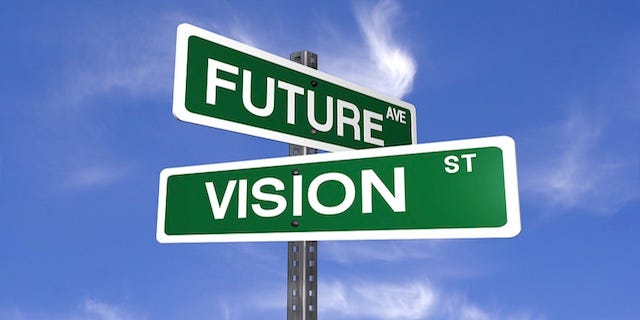







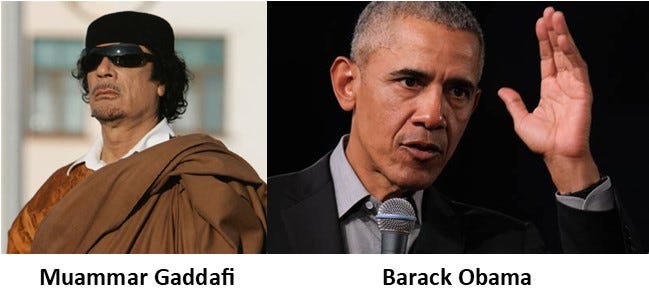
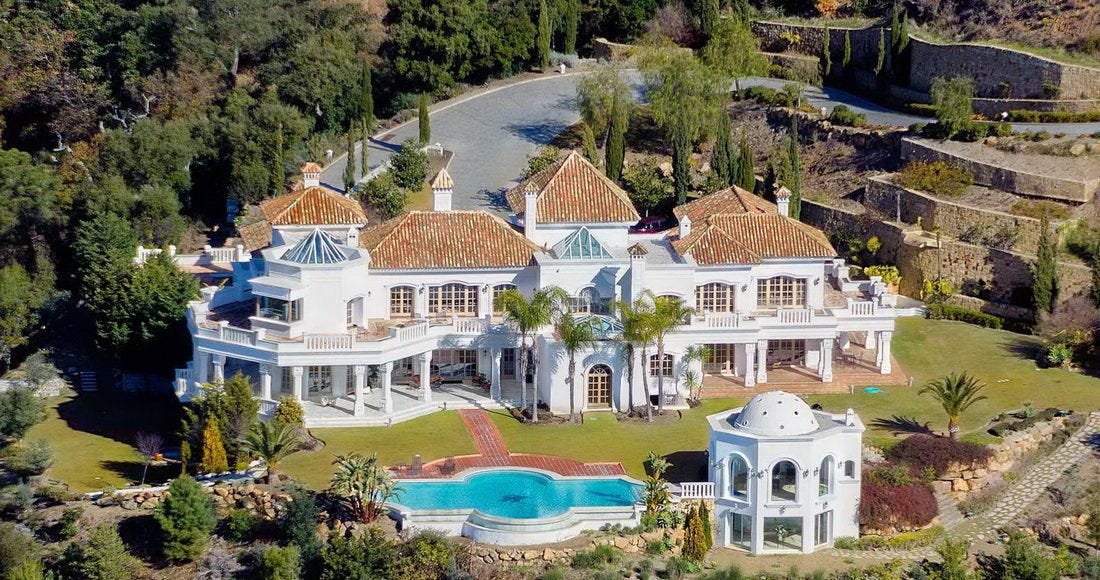
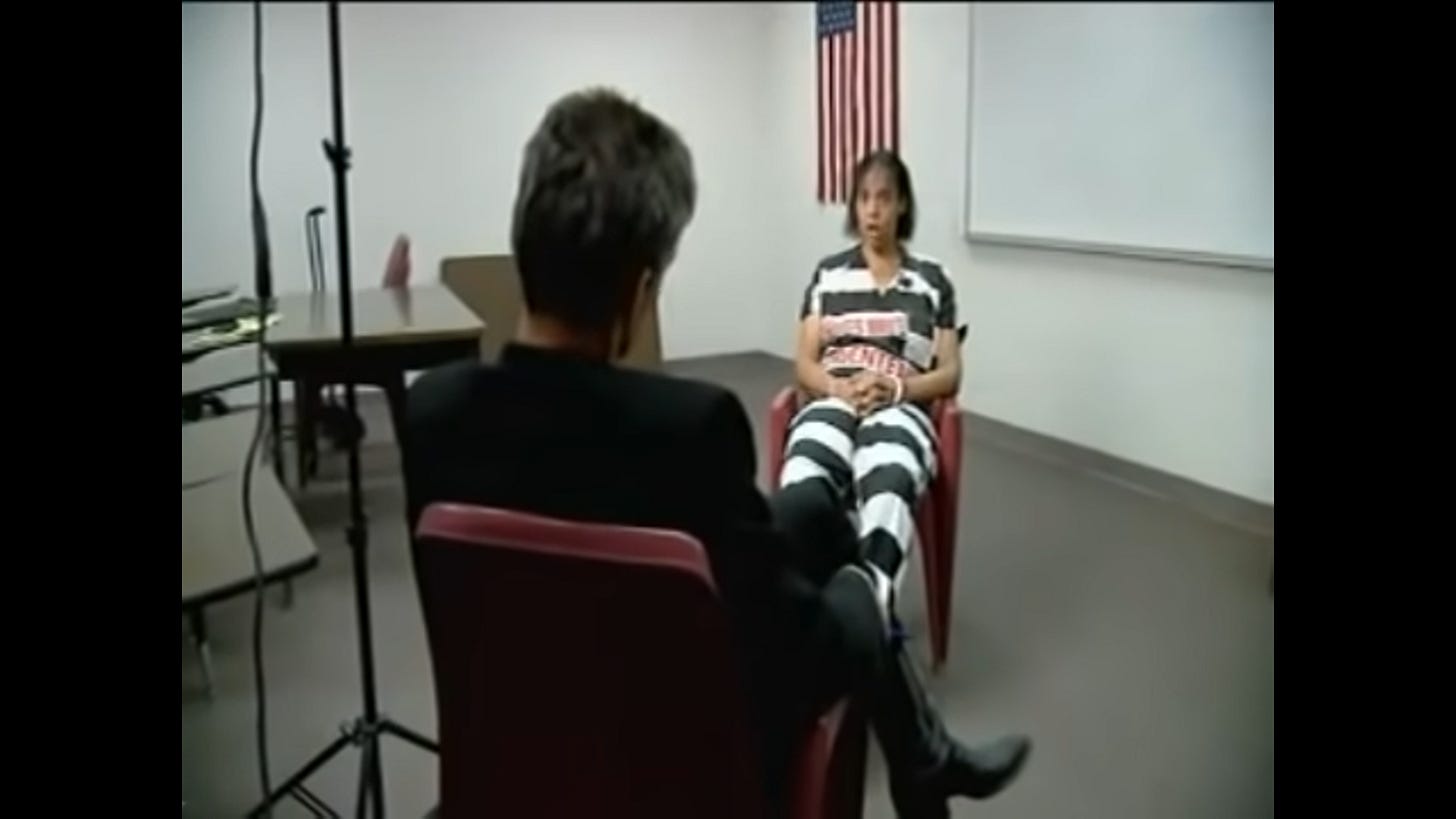
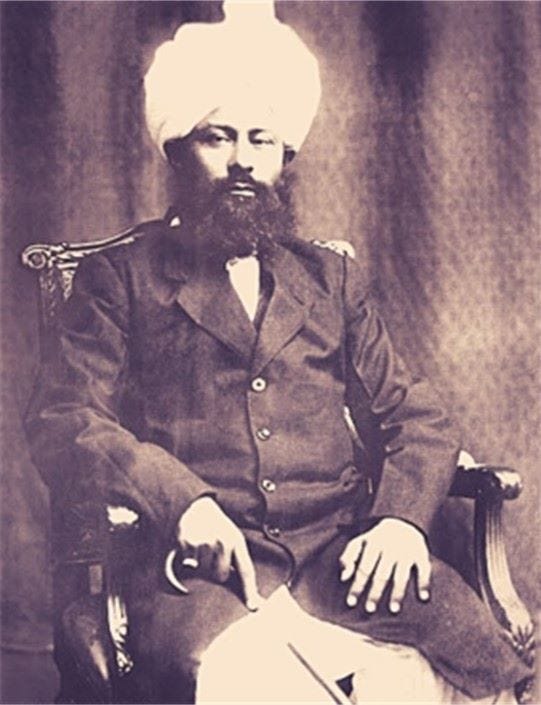
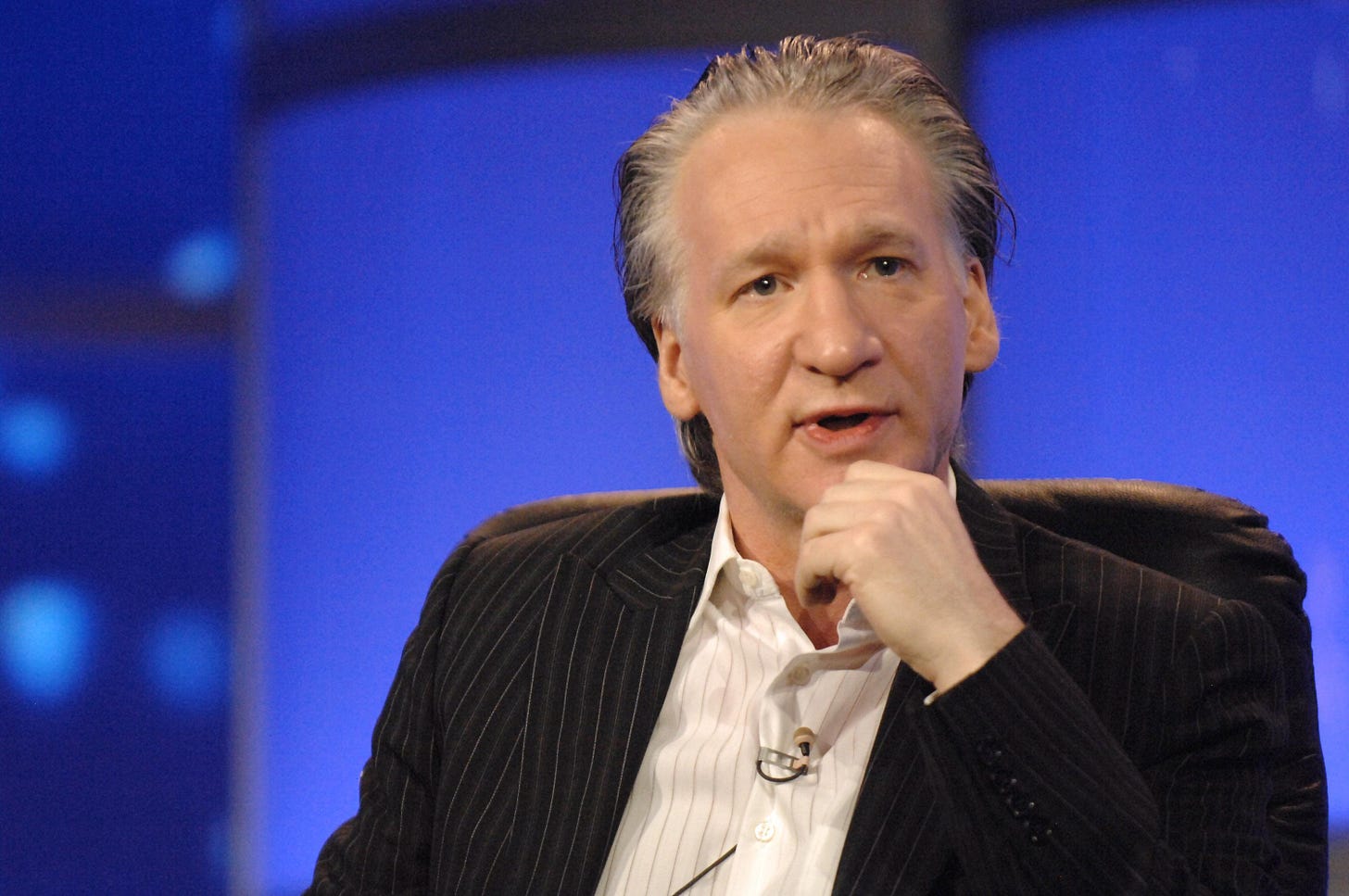


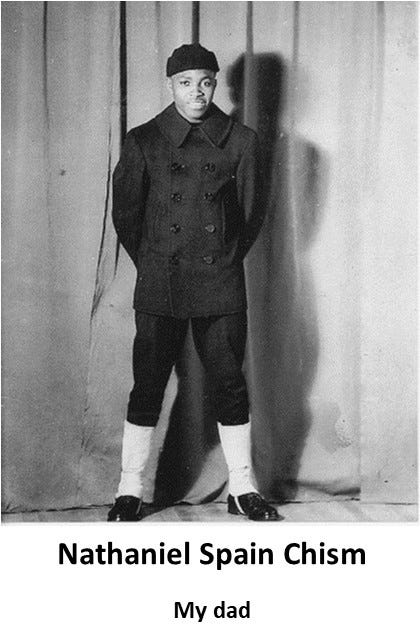

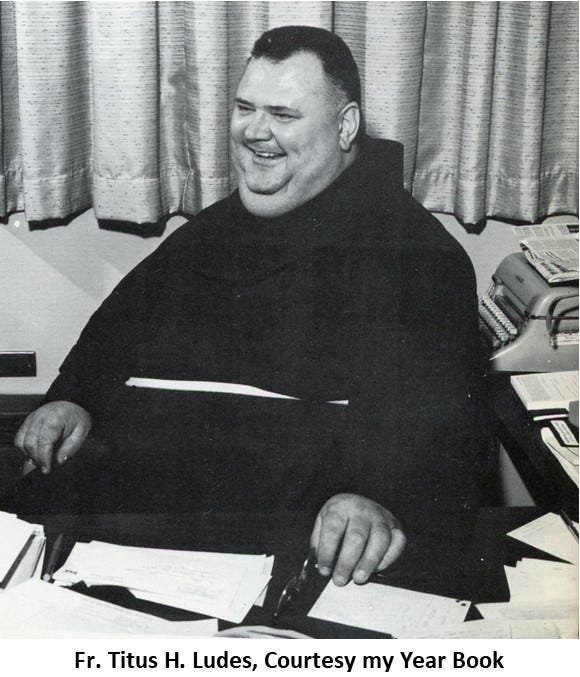


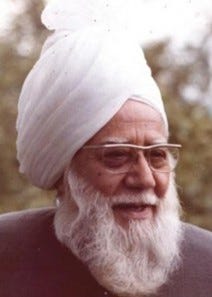






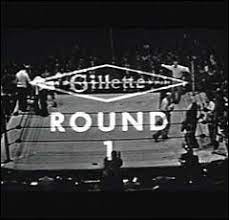



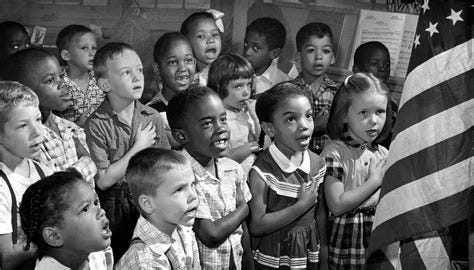



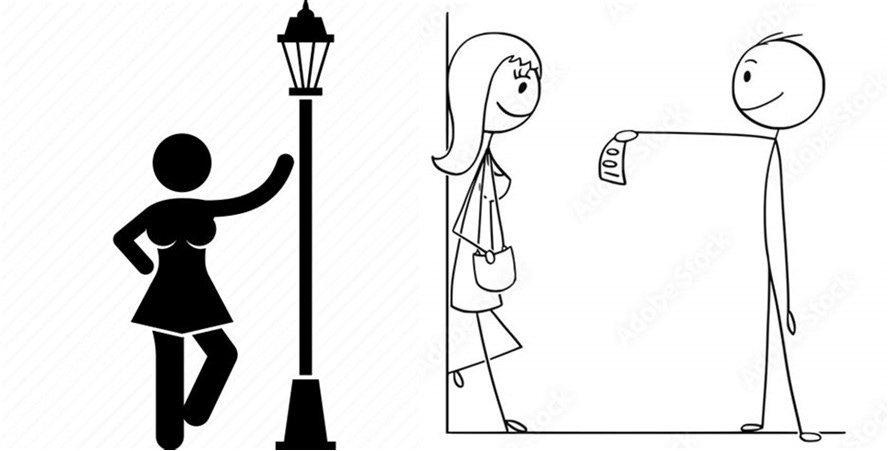




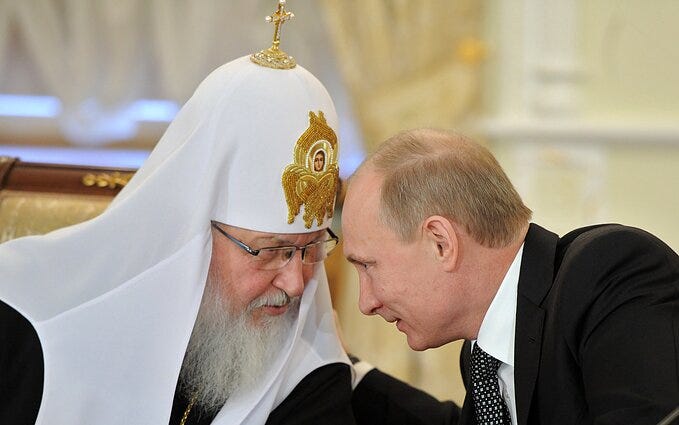
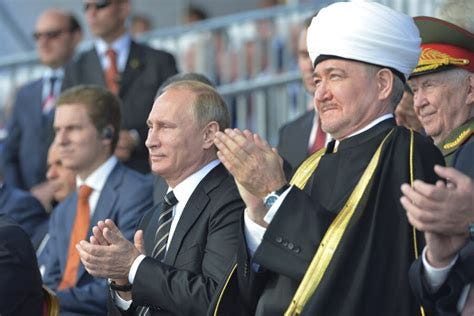





Ron, umm take an afternoon a come back to this. This is a treasure.